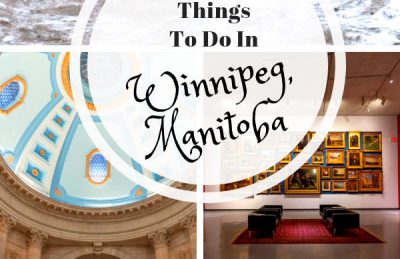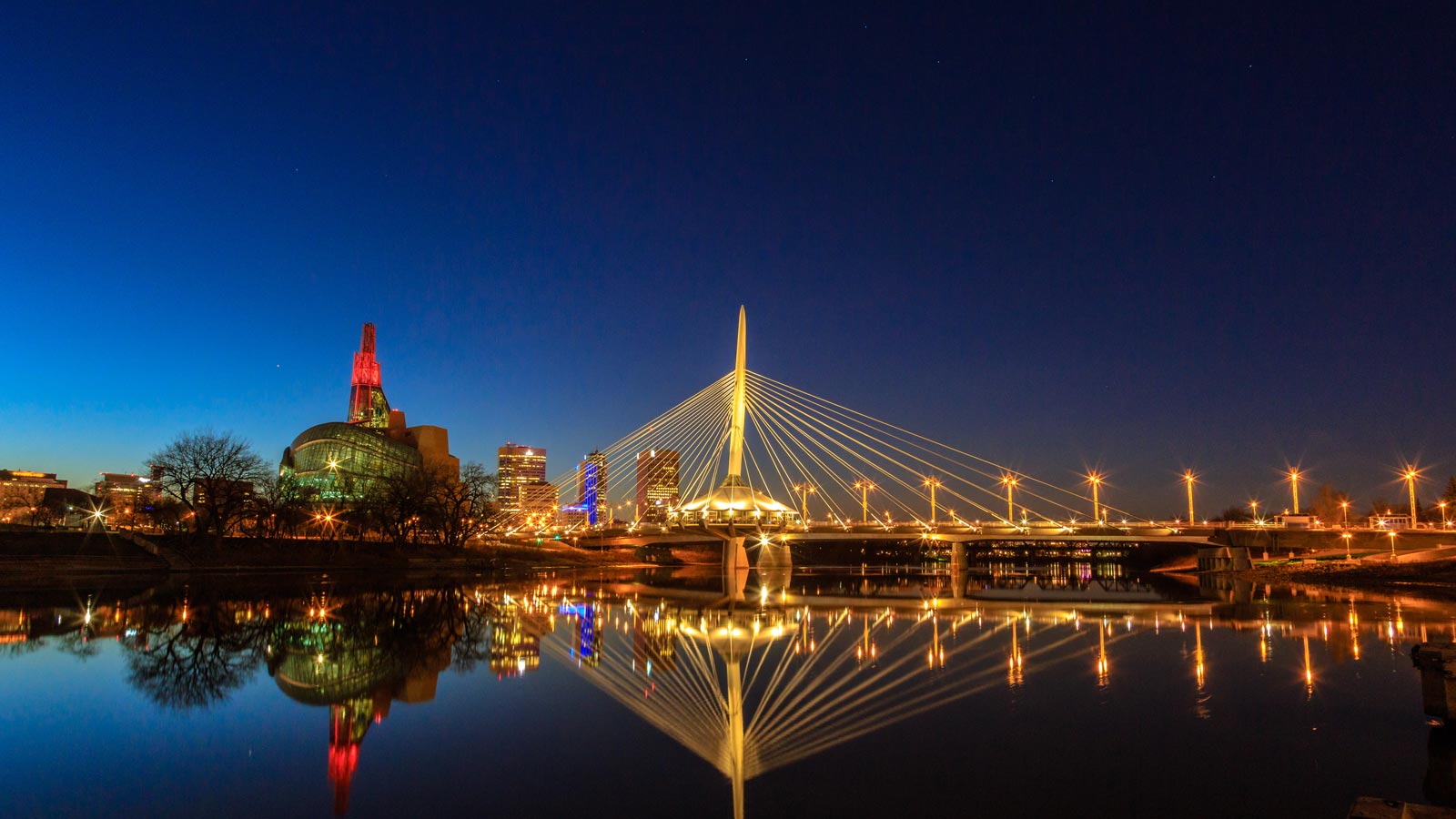
19 Best Things To Do in Winnipeg, Manitoba
Winnipeg is a surprising city that often gets a bad rap from Canadians. That is because most people who call Winnipeg “Winterpeg” have never been there. The capital of Manitoba has a lot going on, from a hot food scene to plenty of outdoor activities and a history that will blow your mind. That’s just the beginning. Time named Winnipeg one of the world’s greatest places in 2021, so you know there is more to Winnipeg than just being a fly-over destination. So, let’s dive straight into all the best things to do in Winnipeg!
Best of Winnipeg Quick Guide
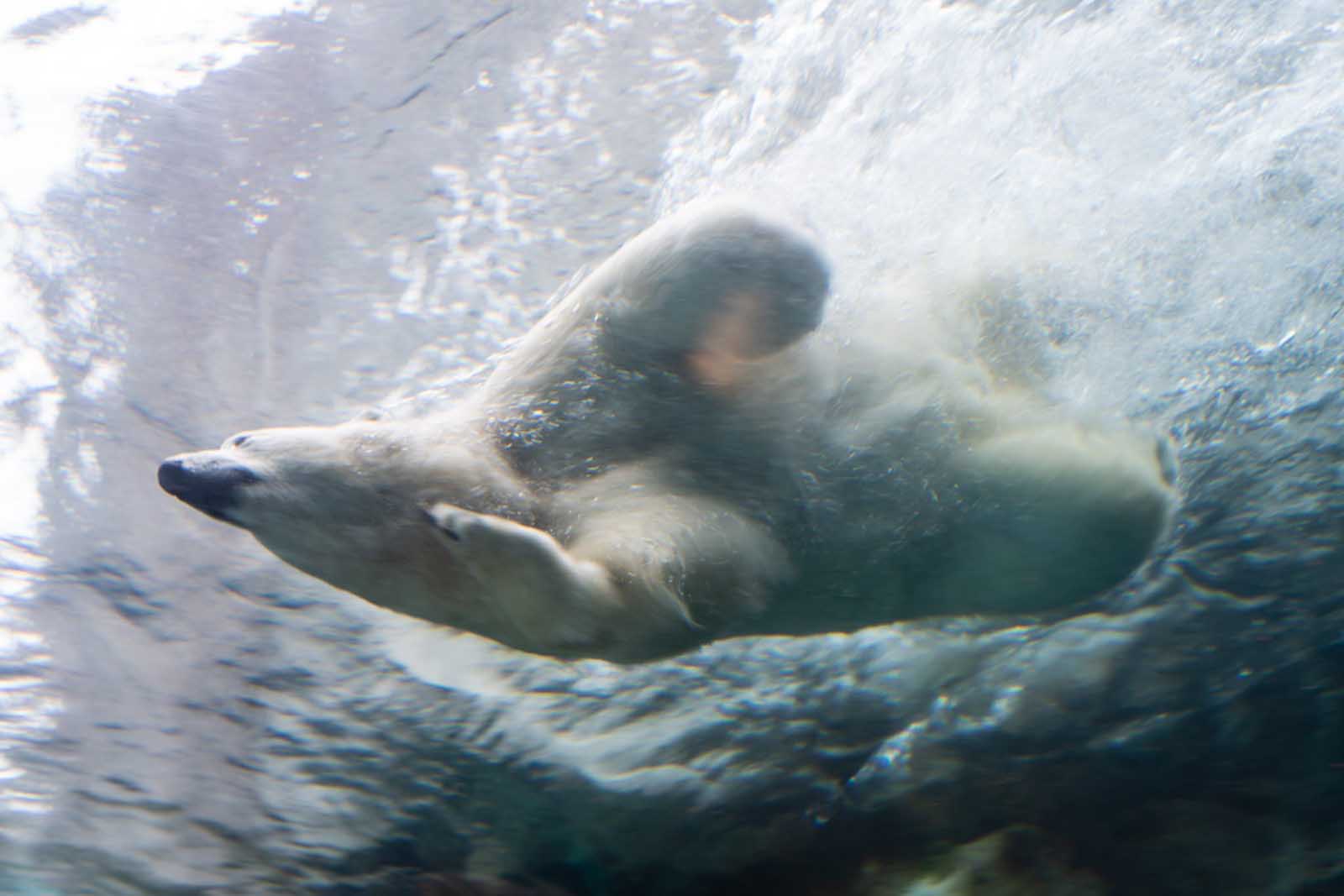

- Must See: The Forks, Assiniboine Park, The Leaf, St. Boniface, Canadian Museum for Human Rights, The Manitoba Museum
- Where To Stay: Radisson Hotel Winnipeg Downtown, Fort Garry Hotel, The Inn at the Forks
- Fun To Do: Folklorama Festival, Assiniboine Park Zoo, Nestwaya River Trail, Winnipeg River Walk
- Must Try Foods: Smoked goldeye, Winnipeg rye bread, Imperial cookies, Schmoo torte
Best Things To Do In Winnipeg
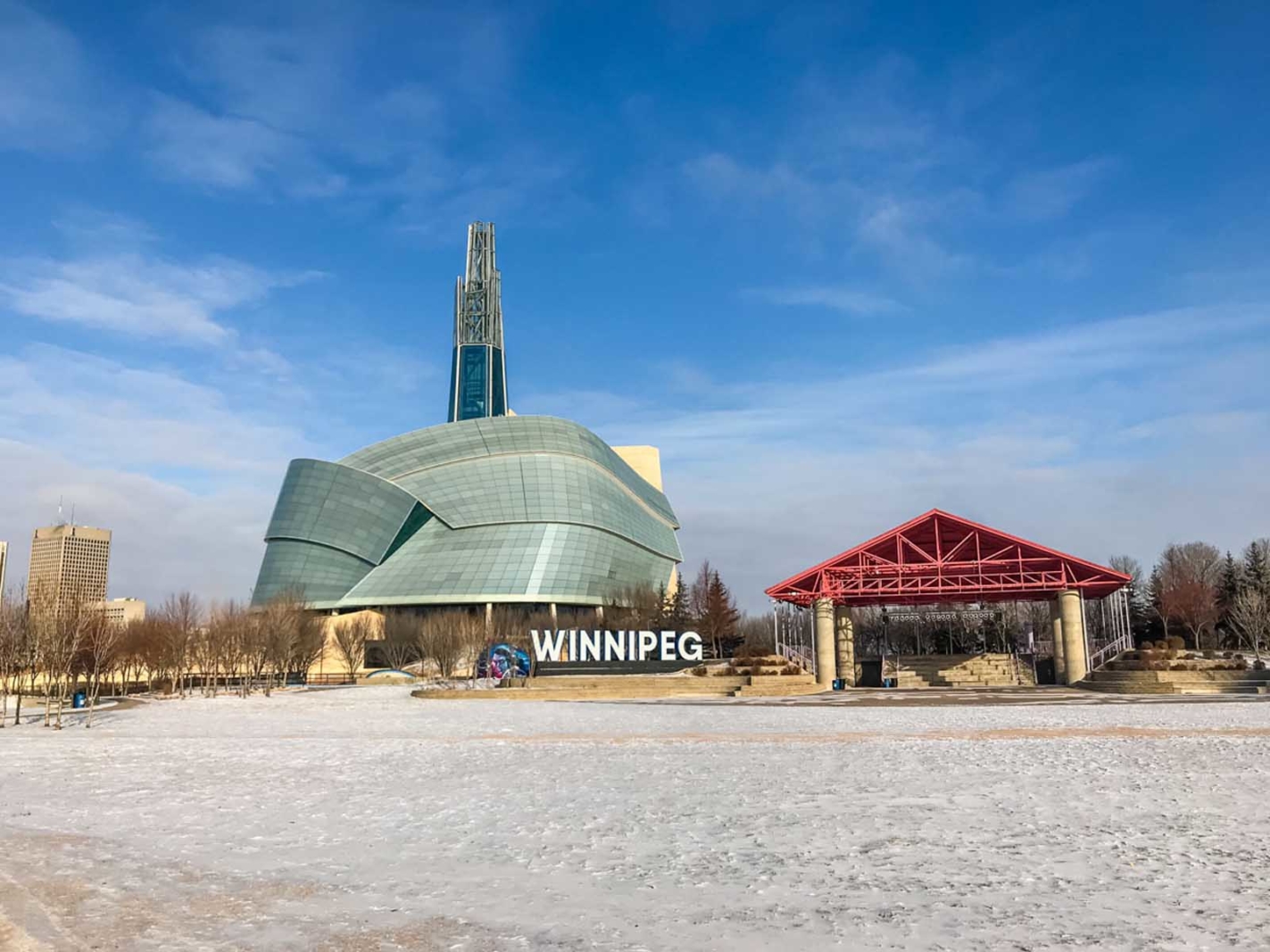

The best Winnipeg attractions range from botanical gardens to fantastic art galleries. The city is particularly known for excellent seasonal festivals; you might even want to plan your entire trip around one. Come to Winnipeg, and you’ll get to tour historic buildings, learn about indigenous culture, and possibly even skate on a frozen river.
1. Be Moved at The Canadian Museum for Human Rights
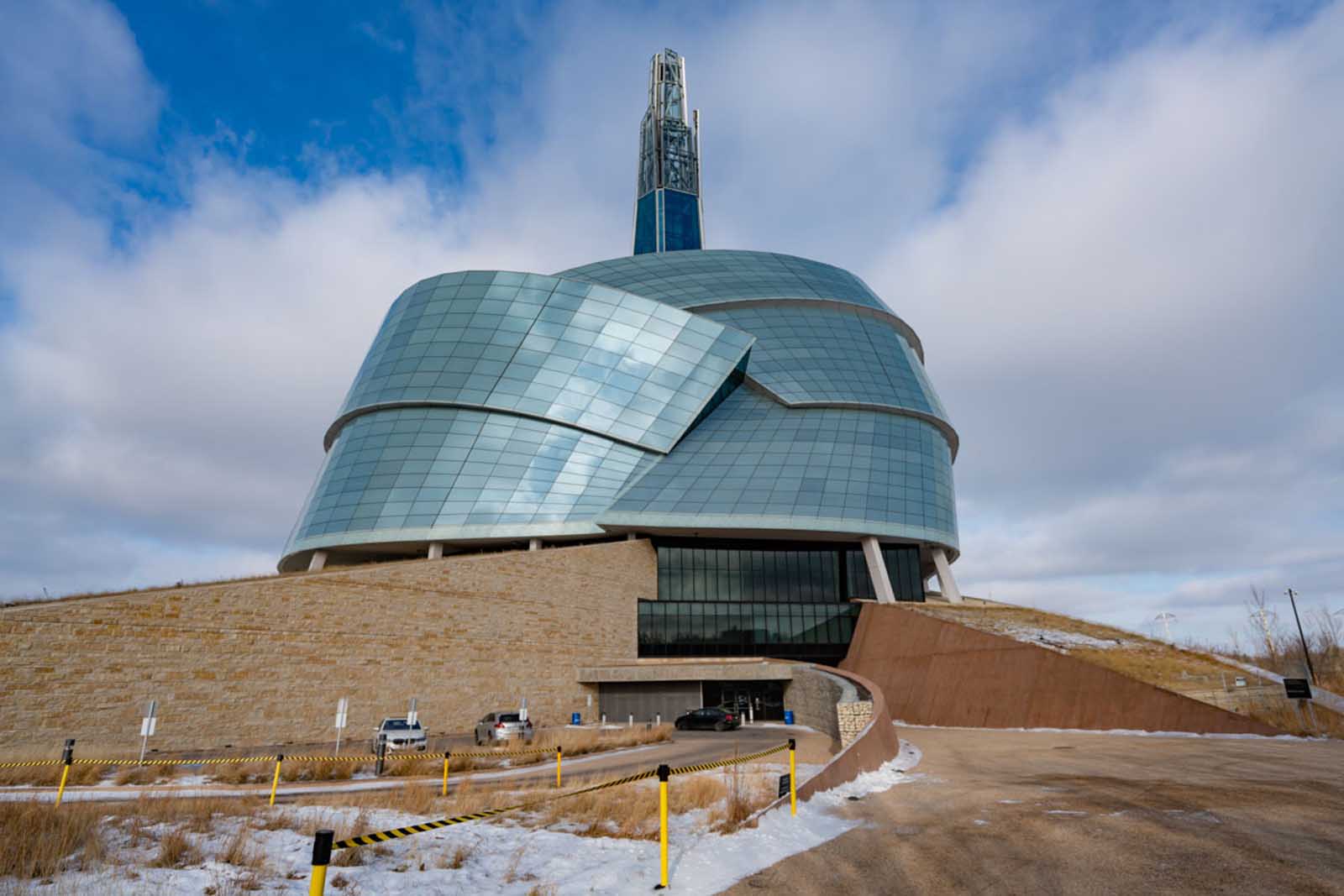

The Canadian Museum for Human Rights is the only museum of its kind in the country and one of the most popular Winnipeg attractions. The building is a modernist work of art, while the exhibit inside is thought-provoking and educational.
The museum aims to raise awareness of various human rights issues plaguing Canada and the world. With several core and temporary exhibits, the museum aims to shed light on the rights of humans around the world and how important it is to protect them.
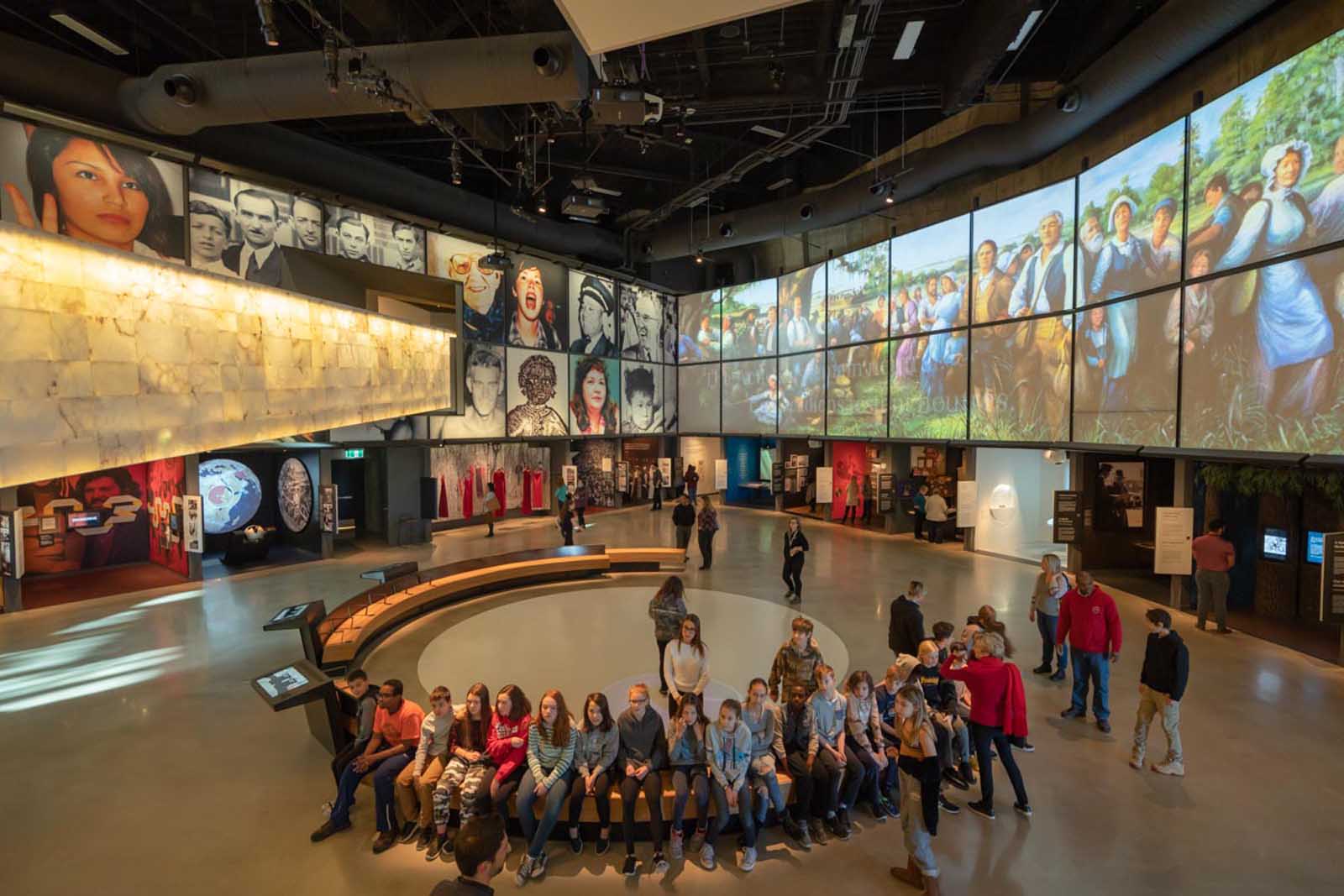

The treatment of indigenous people in all corners of the world is a dominant theme in the museum exhibit. It’s explored in detail in exhibits “Canadian Journeys” and “Indigenous Perspectives Gallery” and is also addressed in part in most other collections. The museum’s temporary exhibits have been varied, covering everything from depicting human rights in Star Trek to Nelson Mandela’s fight against apartheid.
Other interesting exhibits include one dedicated to Viola Desmond, the first black woman on our Canadian $10 bill. The Canadian Museum for Human Rights also showcases human rights abuses and victories worldwide.
Practical Information
The Canadian Museum For Human Rights is open from 10 AM to 5 PM. Adult tickets are $18, and Sunday admission is free.
2. Discover Local Art at The Winnipeg Art Gallery
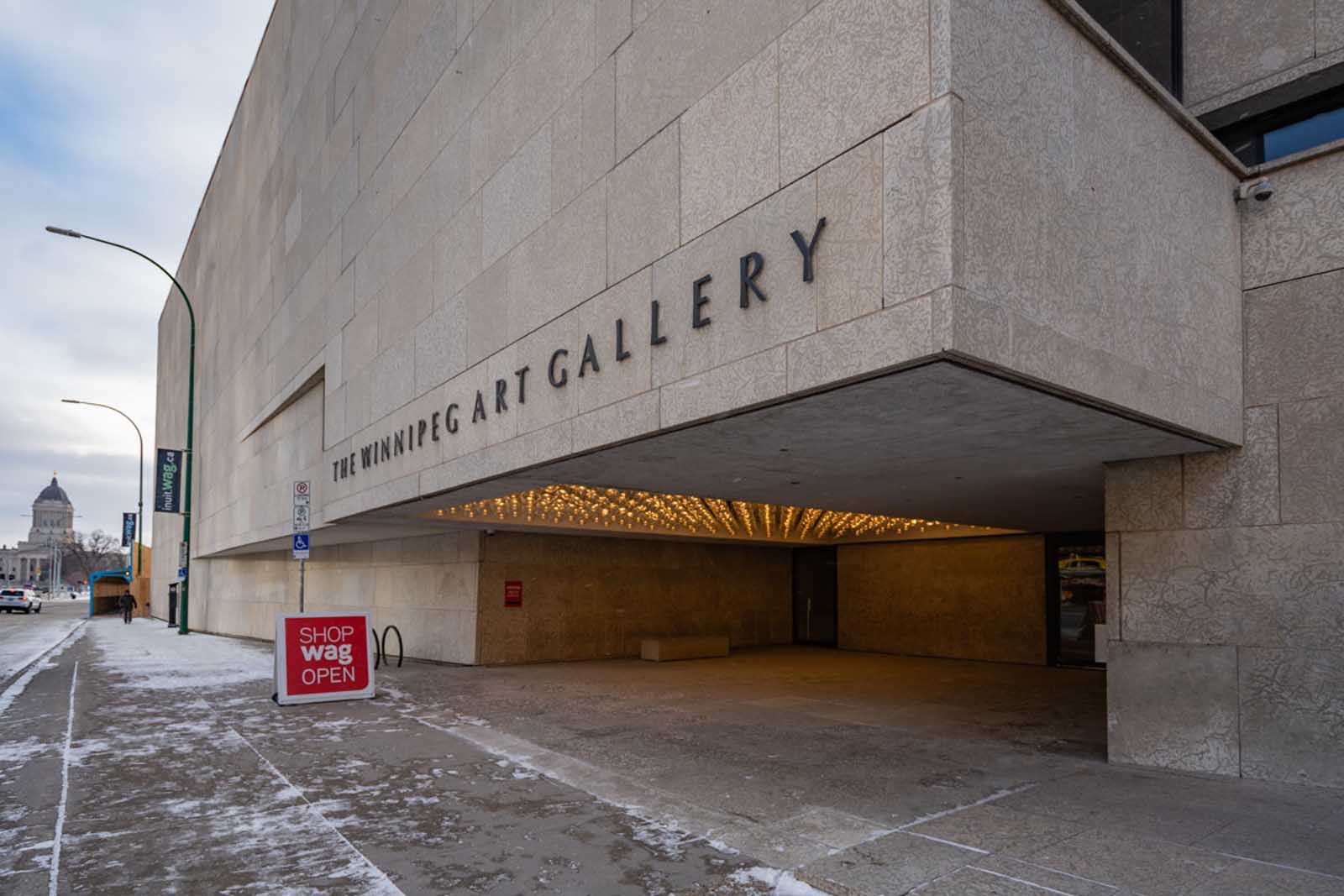

Add the Winnipeg Art Gallery to your itinerary if you want to explore the art scene of this lovely city. With an extensive collection of over 28,000 pieces, it’s a top location for art lovers in Winnipeg.
The museum focuses mainly on contemporary and Inuit art, but its exhibits also include European and Canadian art through the ages and other interesting collections. Also, it’s not just paintings hanging on the walls; the WAG’s collection showcases sculptures, textiles, ceramic objects, and many other pieces of decorative art.
Practical Information
The Winnipeg Art Gallery is open from 9 AM to 5 PM every day except Monday. Admission is $18 for adults.
3. Visit Assiniboine Park and Zoo
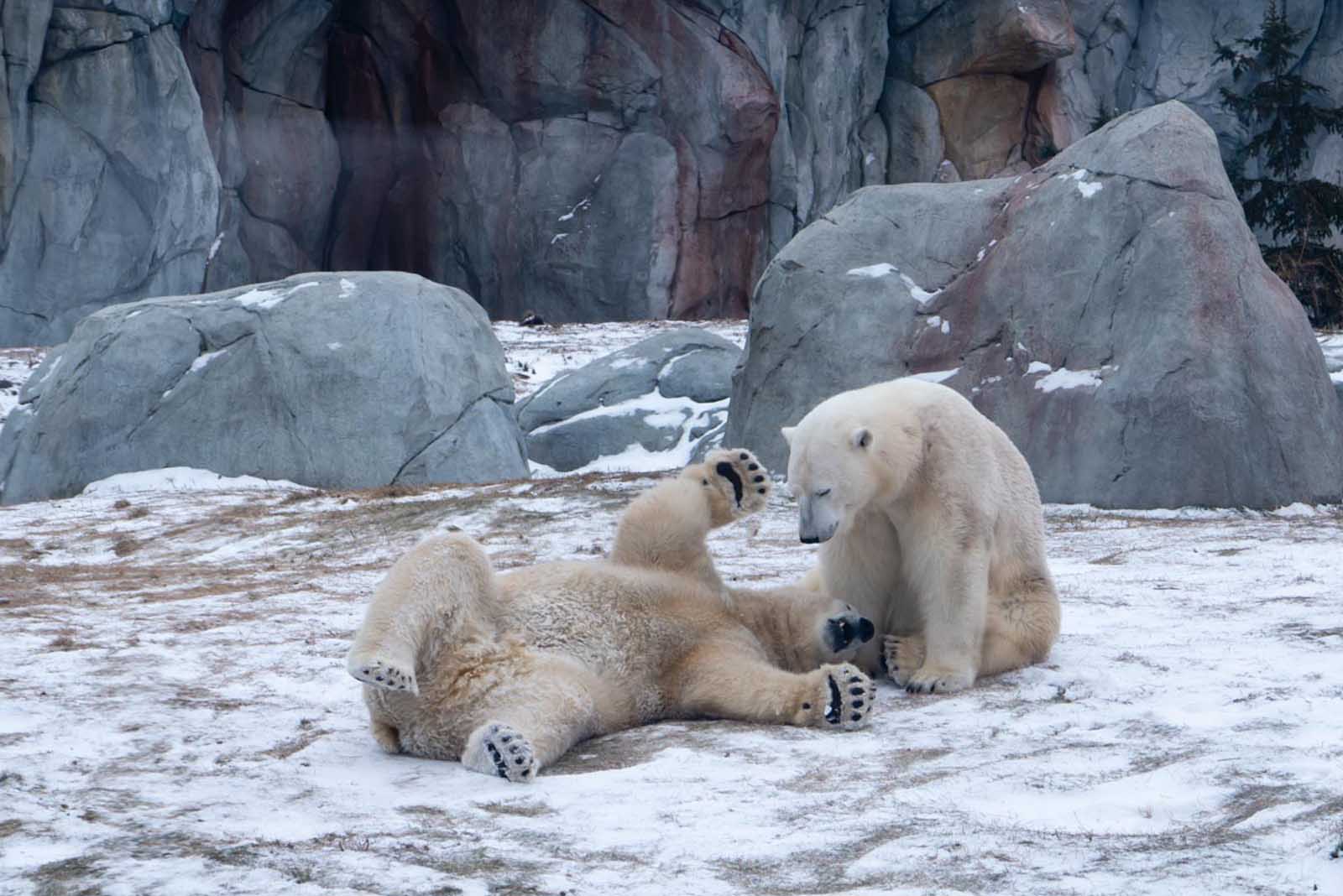

If you’re our regular reader, you’ll know that we don’t recommend zoos and animal parks unless we’re entirely certain that the animals there are treated fairly. We have been to the Assiniboine Park and Zoo several times, and we’ve seen that most animals here are rescued and rehabilitated.
Polar Bears are usually orphaned cubs rescued in the wild and who would have never survived. Once a Polar Bear has been in captivity, it cannot return to the wild as it wouldn’t survive. However, looking at their habitat, they don’t seem to mind at all.
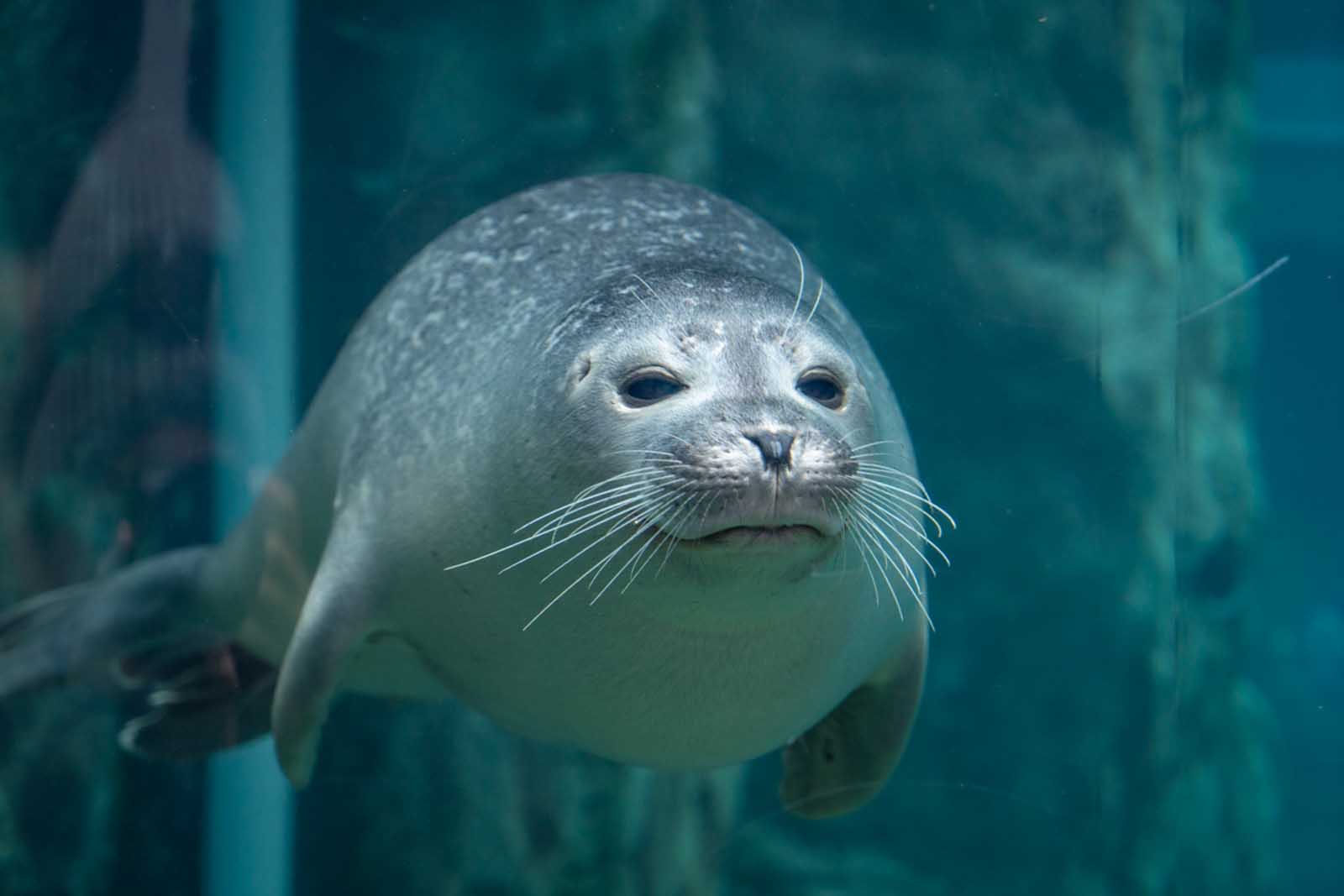

The enclosures are very spacious, closely mimicking their natural habitats. This is a blessing for the animals but a bit of a curse for the visitors because it can sometimes be difficult to spot them, especially if they’re sleeping. But hey, as long as they’re all treated right, we’re absolutely not complaining.
A highlight of the zoo is definitely the underwater display. We had the privilege of watching a polar bear swim above a glass walkway. It was truly having the time of its life! Plus, a cute little harbor seal stopped by to say hello to us. These seals are curious creatures and will come right up to the glass to have a look.
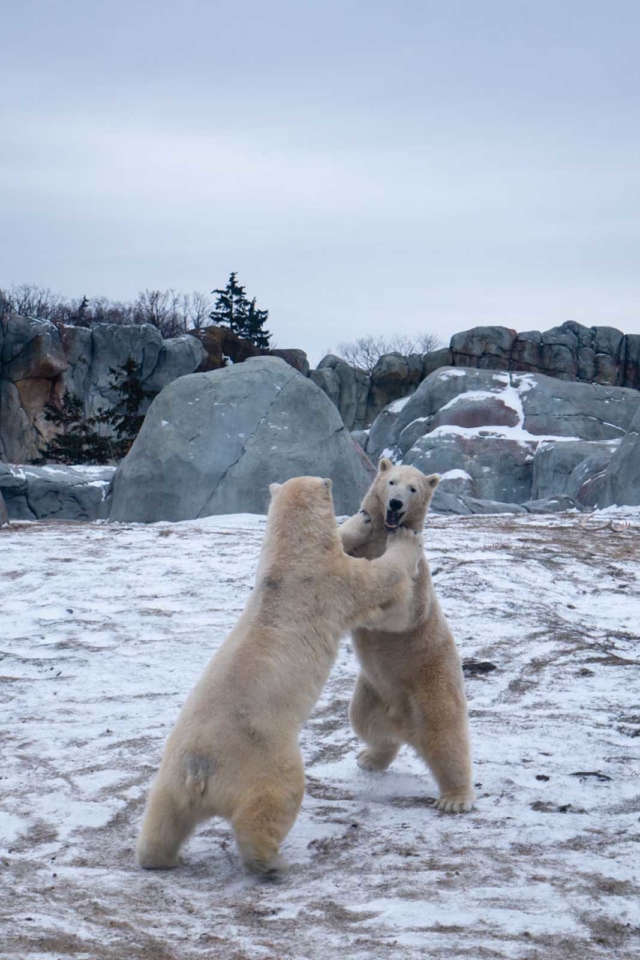

The Zoo is open year-round, but I will say that it’s much more enjoyable in the winter. The crowds are smaller so you can get around more easily, plus most of the animal rescues living at the Assiniboine Zoo are arctic animals (polar bears, arctic foxes, snowy owls, etc.) who are the happiest in the cold weather.
Practical Information
The Assiniboine Zoo is open from 9 AM to 5 PM. The admission fee is $24.70 if you buy the tickets at the gate but $22.45 if you buy them online a couple of days in advance.
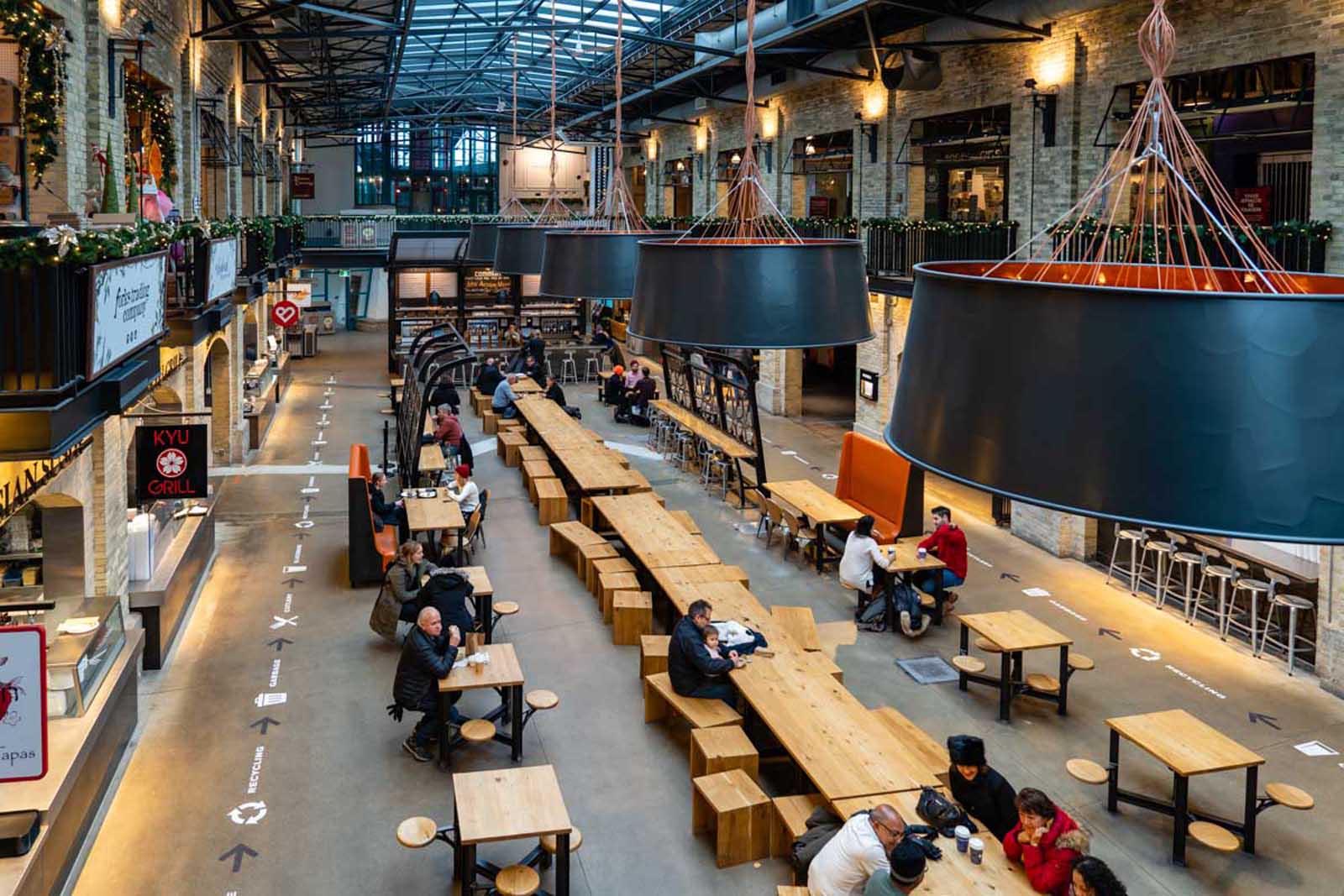

Winnipeg is an interesting destination for its history, and the Forks National Historic Site is definitely one of the top attractions in Winnipeg for every visitor. The Forks National Historic Site has been a meeting place for 6,000 years. Located where the Red and Assiniboine Rivers converge, it was a place where indigenous people met to trade. This tradition continued through the fur trade, where aboriginal peoples met with European fur traders.
Just wandering around the market building is a nice way to spend an afternoon. With plenty of exposed brick and an extensive skylight that lets in a lot of natural light, it’s one of Winnipeg’s most charming buildings. Not to mention the endless shopping opportunities and all the delicious food options.
Practical Information
The Forks Market is open from 7 AM to 10 PM, although individual shops observe different operating times.
5. Tour Winnipeg With A Local
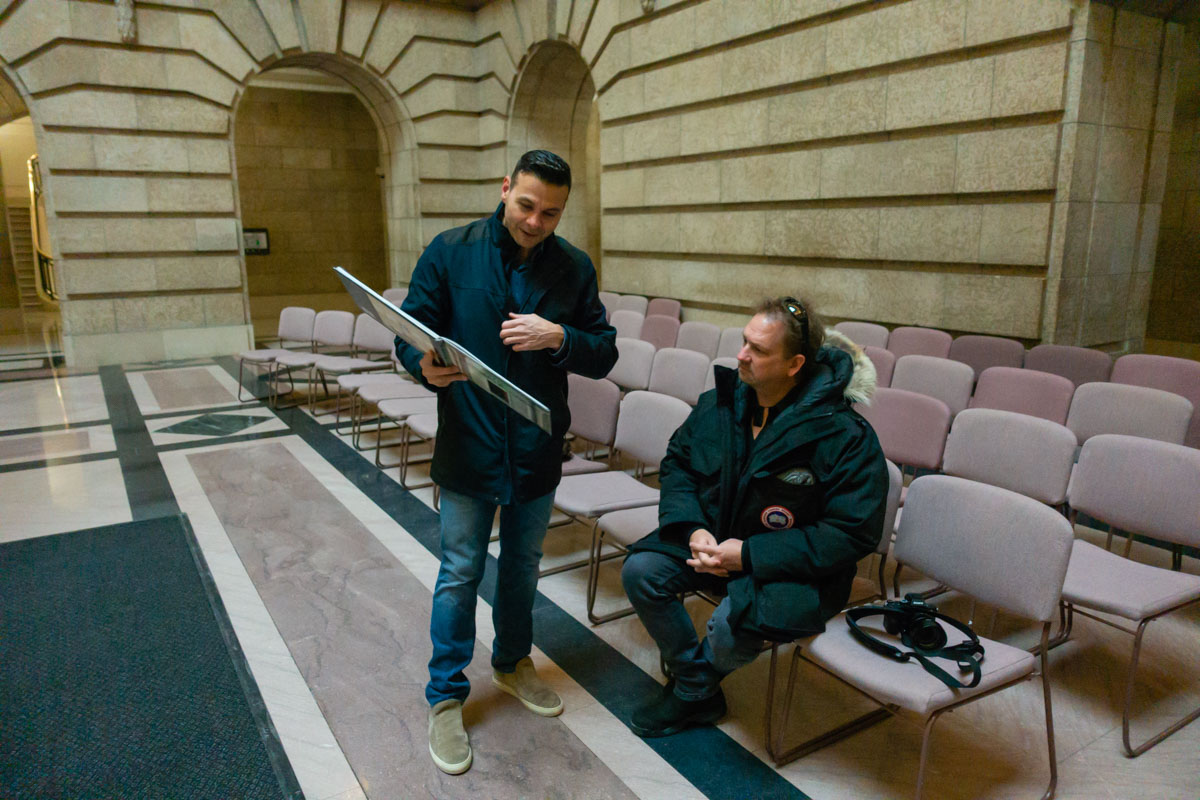

Let a local drive you around Winnipeg for a few hours, and you’ll see all of the city’s top tourist locations and learn about their history. This is a great option for travelers who are in town for a very short time and want to see all the different areas of Winnipeg.
A driving tour is a great option because you can move around the city quickly and reach areas that would otherwise remain unexplored. Plus, you’ll pass next to Winnipeg’s most famous attractions, making it easier to get around the city on foot later when you want to investigate them properly.
Practical Information
A private tour of Winnipeg by car takes around two hours and costs roughly $50 per person.
6. Relax At Thermëa by Nordik Spa-Nature
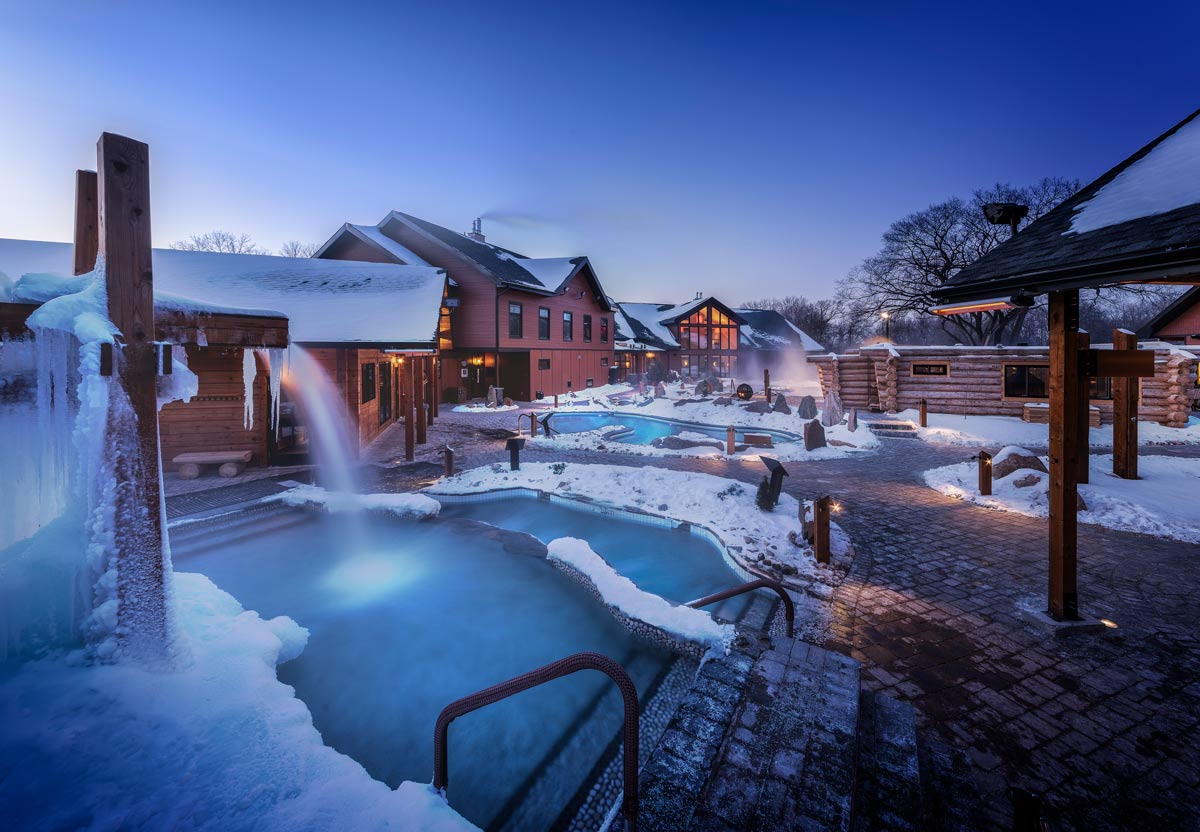

Thermëa by Nordik Spa-Nature is a spa and health club in Crescent Drive Park on the bank of the Red River. If you’re in Winnipeg in the winter, this is by far one of the best places to visit in town to warm up. Unwind in the toasty thermal baths and get a relaxing massage that will have you dozing off on the table.
The health club is also known for its delicious food, which really hits the spots after a day full of pampering. I’d recommend checking out the restaurant even if you’re not going to soak in the pools, as it’s one of the city’s best. It’s an easy taxi ride from downtown. You can easily spend an entire afternoon here.
Practical Information
The Thermëa by Nordik Spa-Nature is open from 8:30 AM to 10 PM. It’s $86 for adults to relax in the thermal pools and massages are charged extra.
7. Ice Skating the Nestaweya River Trail
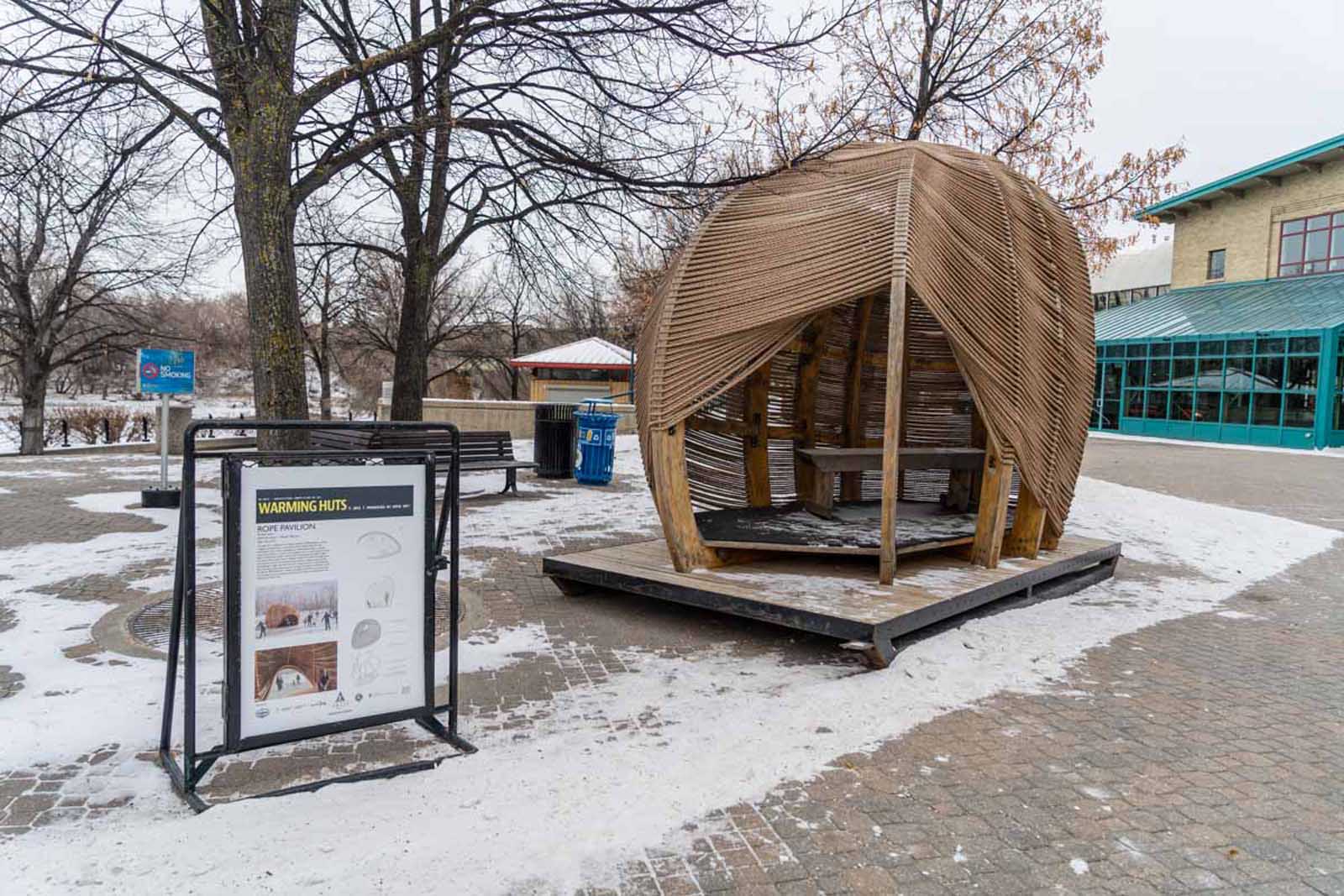

The Nestaweya River Trail is one of Winnipeg’s most popular winter attractions. Every winter, the local authorities create an ice-skating trail on the Red River, which anyone can access for free. It’s one of the best things to do in the city in cold weather, and countless locals and tourists put on their skates and glide across the frozen river for fun.
However, I can’t guarantee that you’ll be able to do it the next time you’re in Winnipeg. In the winter of 2024, the Nestewaya River Trail was open for only nine days total in two short stints. The mild winter and high precipitation made it extremely challenging to manage the trail and guarantee everyone’s safety.
Practical Information
The Nestaweya River Trail is accessible only in the winter, free of charge.
8. Walking Tour of St. Boniface
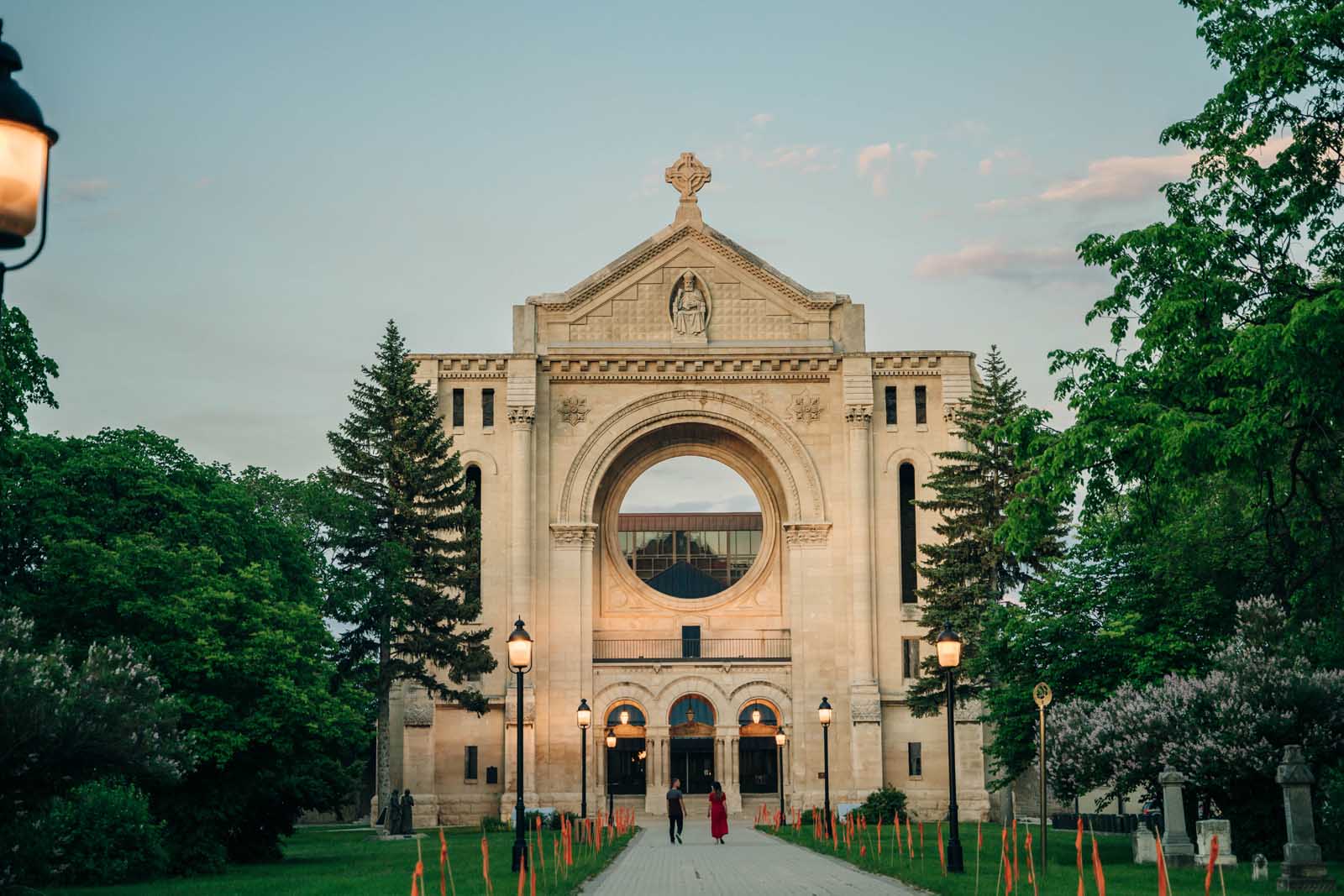

St. Boniface is home to the largest French-speaking community in Western Canada. The city district features many interesting landmarks and is the perfect location for an easy-going walking tour in Winnipeg. Also, there are quite a few bakeries throughout St. Boniface, and you’ll never be far from a delicious croissant.
First, cross the Esplanade Riel Footbridge from Downtown Winnipeg to St.Boniface. Then, you’re just steps away from Saint Boniface Cathedral, the district’s most important landmark. Also, see Whittier Park, Fort Gibraltar, and Université de Saint-Boniface, the area’s best historic sights.
If you have enough time in Winnipeg, the Royal Canadian Mint and Le Musée de Saint-Boniface Museum are also worth touring.
Practical Information
St. Boniface is a francophone district in Winnipeg, accessible on foot from the central city area.
9. Attend Festival du Voyageur
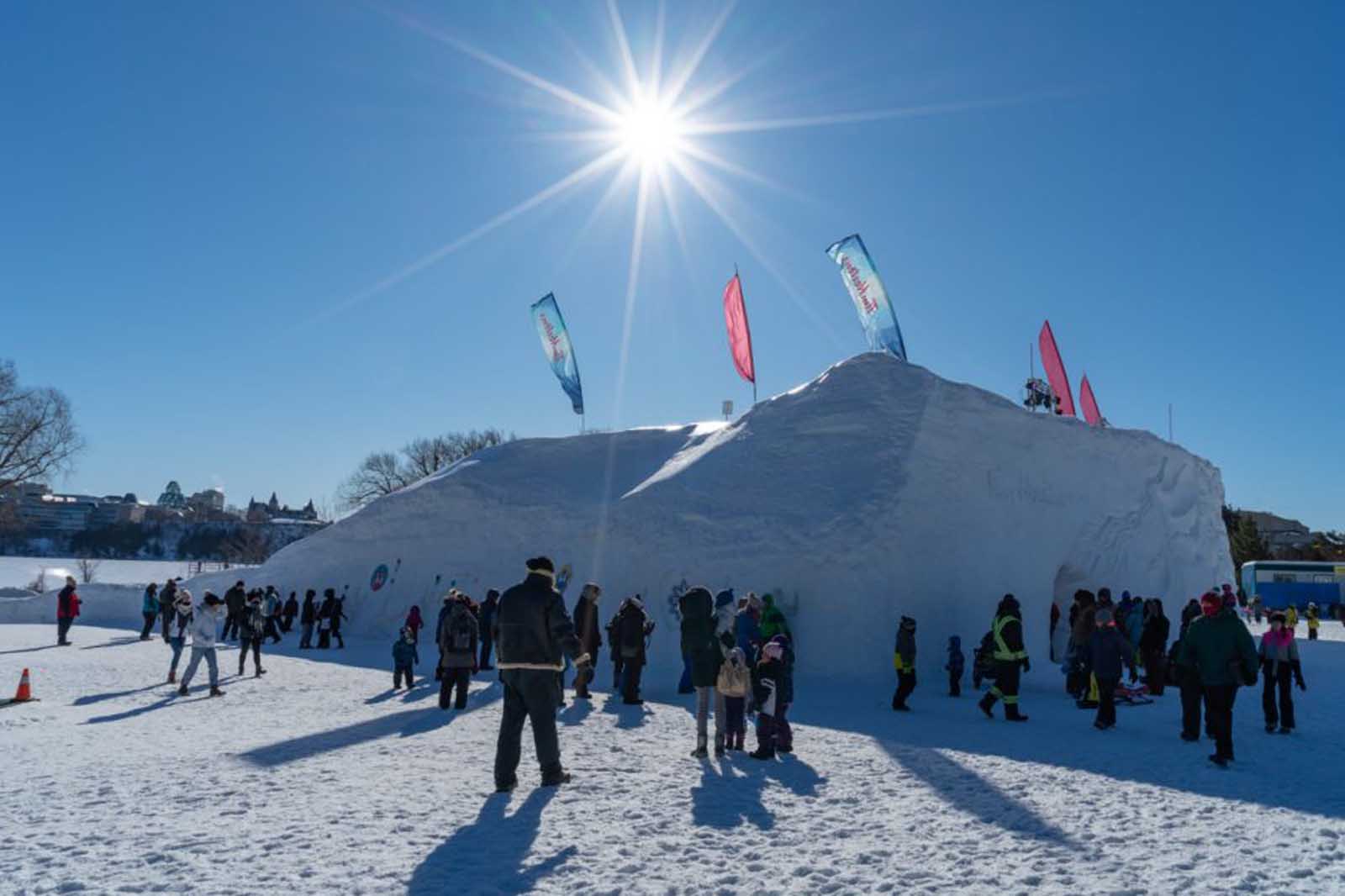

Winnipeg is famous for its festivals, so I had to include Festival du Voyageur, even if it is a seasonal attraction. It usually takes place in February and lasts for 10 days, attracting more than 75,000 visitors annually. This is the largest winter festival in Western Canada, and it has a history of more than 50 years.
Festival du Voyageur is known for music performances, giant snow sculptures, handmade crafts, and much more. The event is both fun and educational, aiming to promote the various francophone and indigenous artists.
The main location for the festival is Whittier Park, which is within walking distance of Downtown Winnipeg.
Practical Information
Festival du Voyageur usually takes place in the middle of February. The admission fee varies from $5-$40 per day, depending on when you arrive at the festival location.
10. Winnipeg Over The Years at The Manitoba Museum
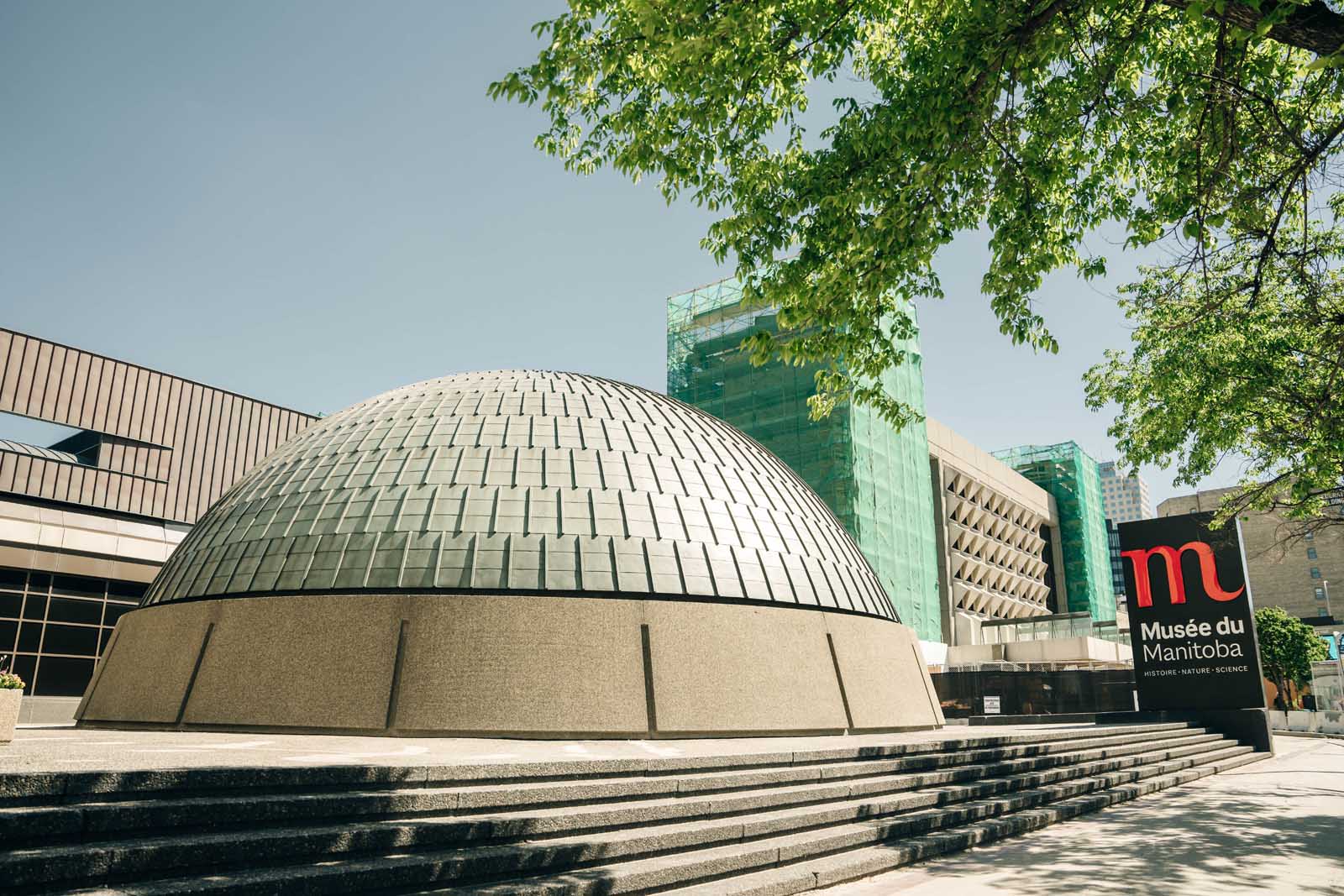

The Manitoba Museum is a natural history museum with a collection of 2.9 million artifacts. It has three distinct areas, and visitors can choose to visit as many as they like. Individual tickets are available for each part of the museum.
They are the Science Gallery, the Planetarium, and the Museum Galleries. If you are short on time, prioritize the Museum Galleries as it is the most elaborate area of the museum with a detailed exhibit on Winnipeg through the ages.
Practical Information
The Manitoba Museum is open from 10 AM to 5 PM daily, except on Mondays. The combined ticket for all museum attractions is $24.15.
11. History Tours at Dalnavert Museum
The Dalnavert Museum is set inside a Victorian-Edwardian mansion. With period furniture and costumed tour guides, visiting this museum is like traveling back in time.
Visit the museum for beautiful architecture, but also to see a surprisingly accurate depiction of life in the 19th century. And pay attention to all the details, whether it’s the mesmerizing stained glass windows or the elaborate kitchen stove.
Practical Information
The Dalnavert Museum is open from Wednesday to Sunday, from 10 AM to 4 PM. Tours are just $10 per person, and it’s recommended to book your spot in advance.
12. Admire The Diversity at The Folklorama Festival
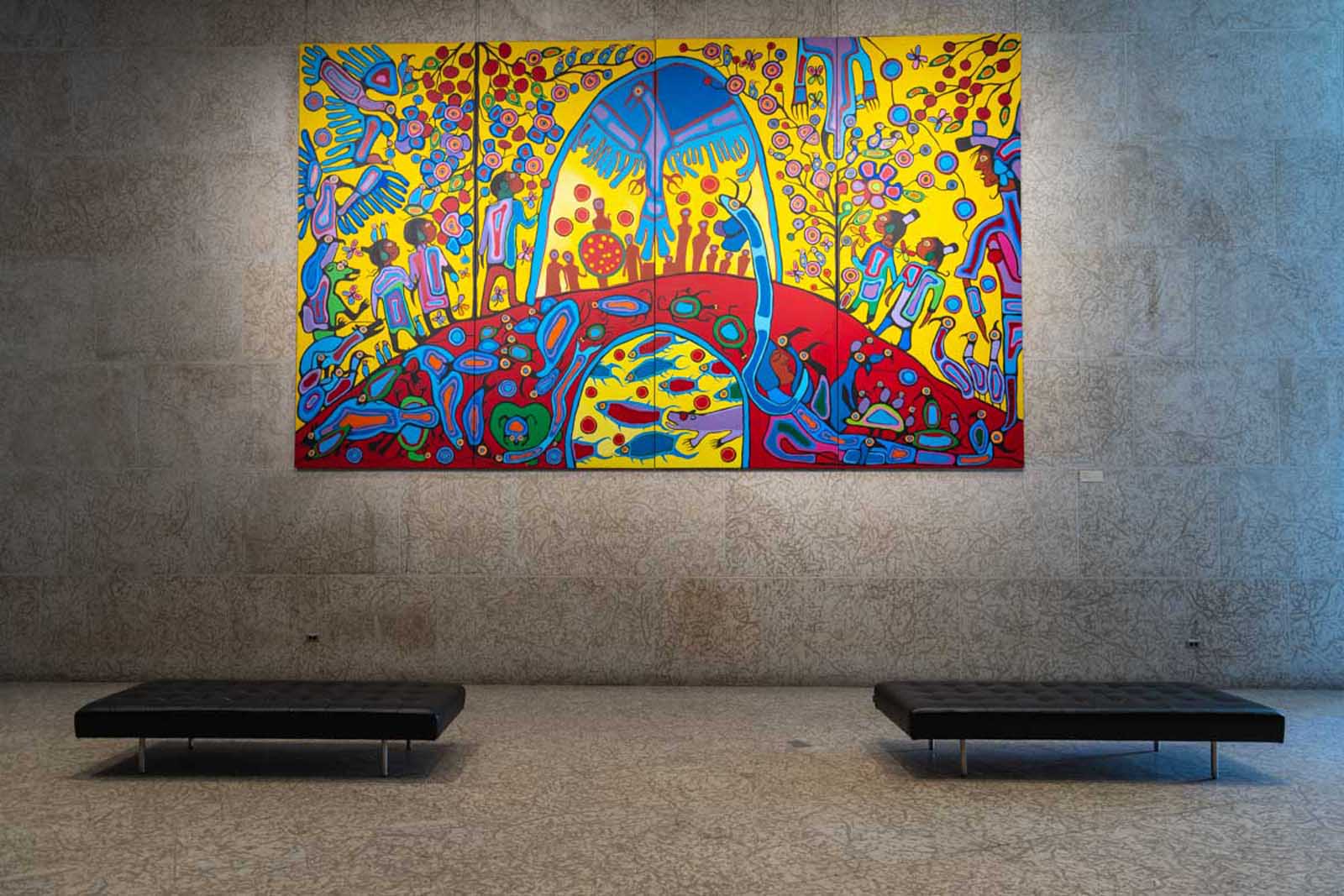

I included a winter festival in Winnipeg, so it’s only fair that I also include an alternative in the summer for all the travelers who prefer to visit the city when it’s warm. The Folklorama Festival is the biggest event of its kind in Winnipeg, attracting hundreds of thousands of visitors.
It takes place in August and lasts for two weeks. The festival aims to celebrate all the different cultures that call Winnipeg their home. Every distinct culture gets its own pavilion at the festival, and there are usually around 40 different pavilions on the grounds.
Each pavilion celebrates its culture with traditional music, dances, and, of course, food. Some will offer extra services, such as henna tattoos or various workshops.
Practical Information
The Folklorama Festival is held every August. Tickets are $7.5 per pavilion, and discounts are offered when you buy combo tickets for multiple pavilions.
13. Winnipeg River Walk
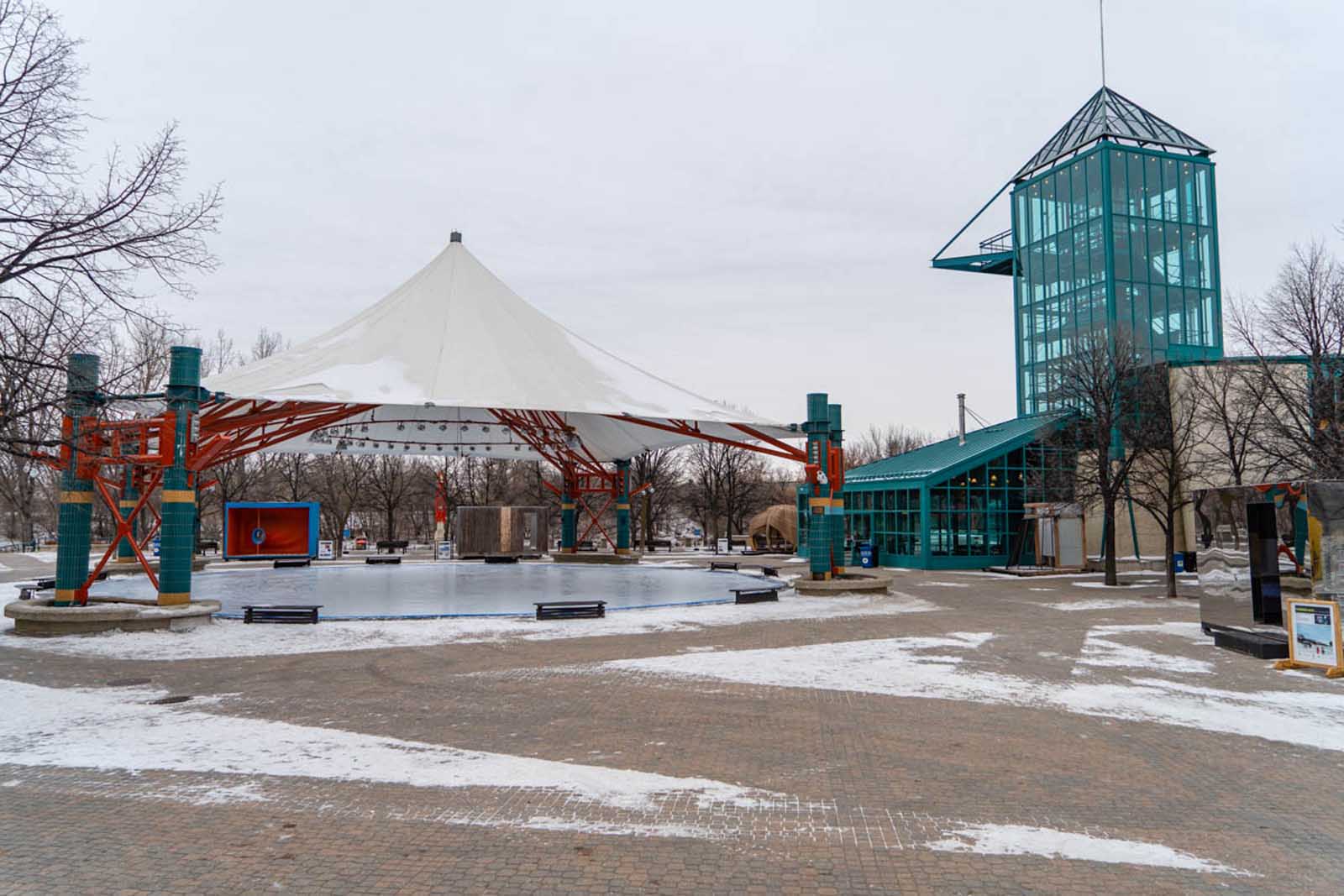

The Winnipeg River Walk is a waterfront walking trail extending from the Manitoba Legislative Building to the Red and Assiniboine Rivers junction at the Forks Historic Site. It’s the perfect place for a casual stroll in Winnipeg, largely due to the nice views.
Doing the River Walk in one direction shouldn’t take more than 25-30 minutes. On either end, you get to see prominent buildings with sculptures and landscaped grounds. There’s hardly a better way to end a day full of exploration and sightseeing in Winnipeg!
Thanks to Kendrick’s Outdoor Adventures in The Forks, you can explore the city year-round. They offer fat bikes for winter cycling, e-bikes, e-scooter rentals, and snowshoes (in the winter!)
Practical Information
The Winnipeg River Walk extends for roughly 2.5 kilometers in one direction.
14. The Manitoba Legislative Building
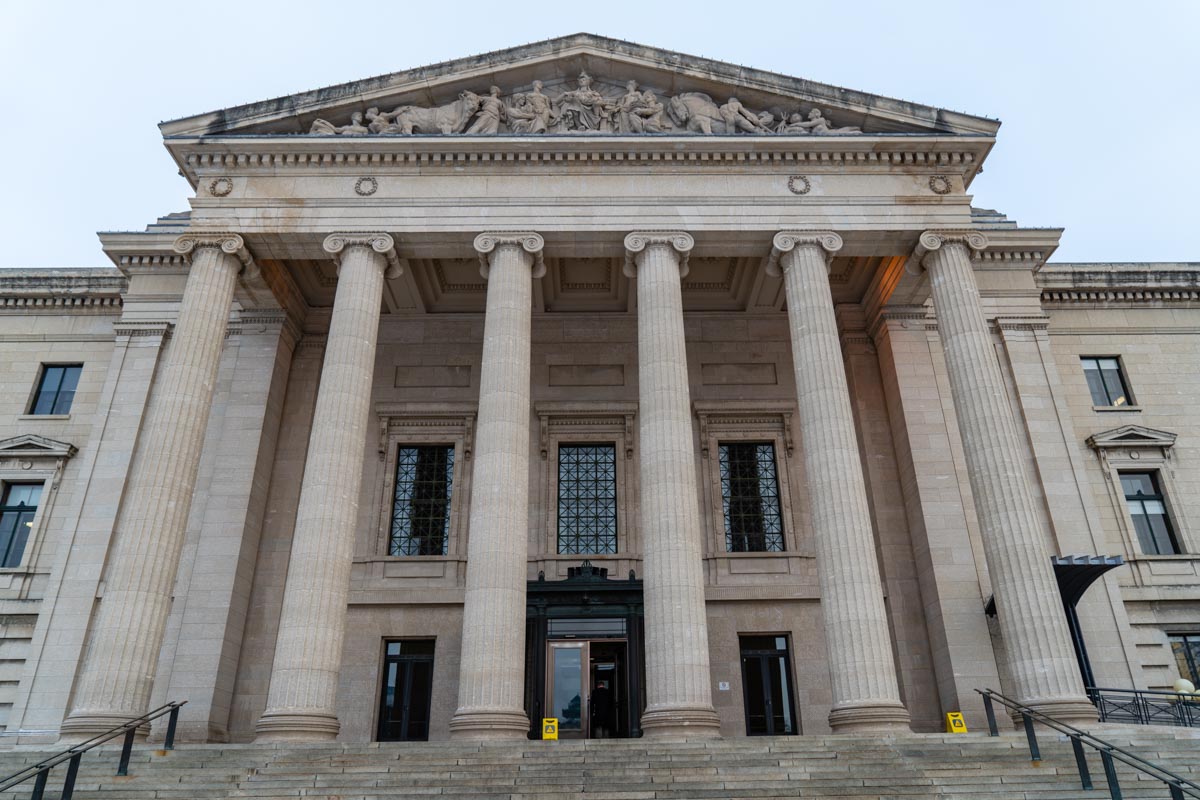

The Manitoba Legislative Building was one of the best things we did in Winnipeg. It is also one of the most interesting tours we’ve taken in our lives! We met Frank Albo (Canada’s answer to Dan Brown) on the steps of the Winnipeg Legislative Building and he took us on a walkthrough of Winnipeg’s very own Da Vinci Code.
We were then taken on a wild tour of secret societies and scandals as we walked through the halls of the historic building. It is so intriguing that Albo met with Prince Charles in the royal room when he visited.
This is definitely one of the most interesting things to do in Winnipeg. Book your Signature Experience Tour here.
15. Exchange District
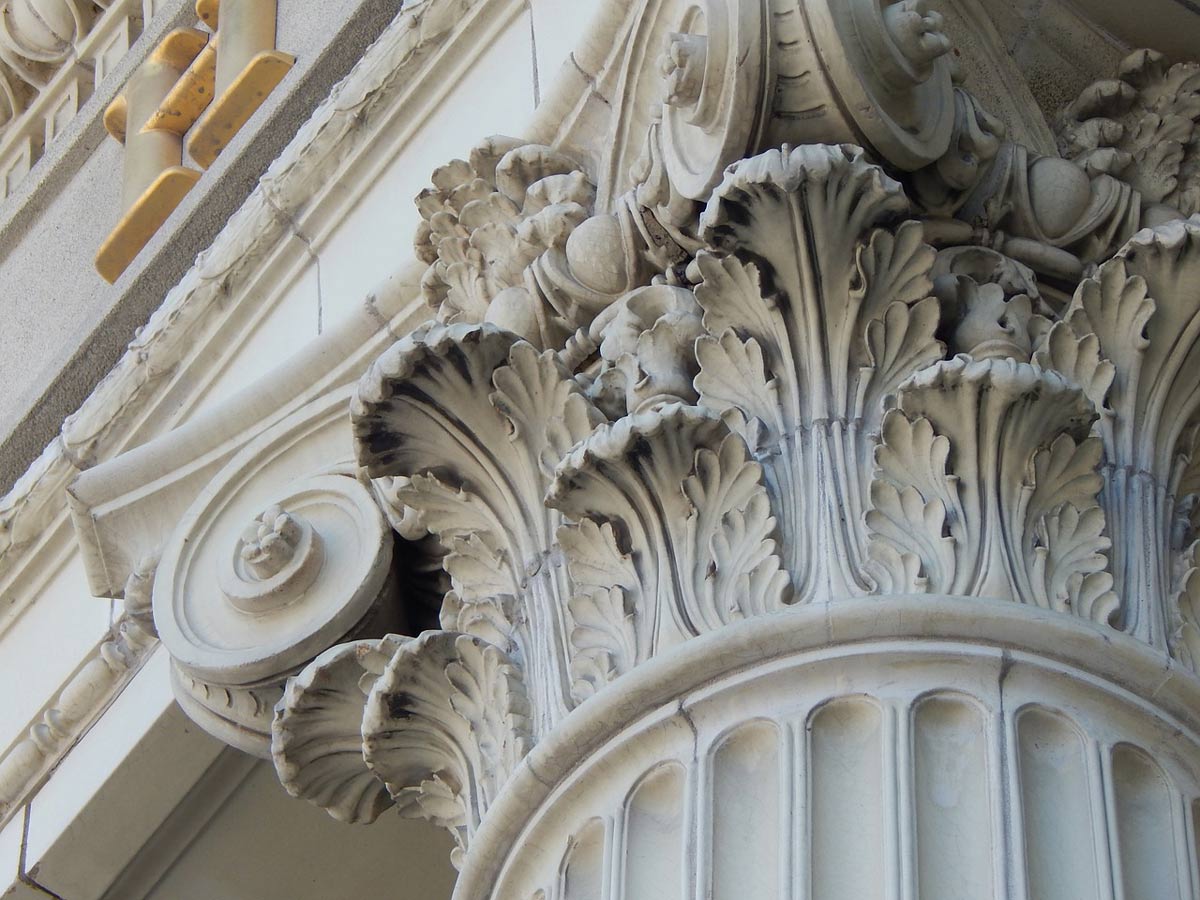

Take a stroll through time at the Winnipeg Exchange District’s heritage buildings dating from 1880 to 1920. What was once a derelict part of the city has now become a vibrant neighbourhood filled with coffee shops, boutiques, art galleries, and restaurants. It’s worth spending an afternoon or evening exploring the stylish area.
The Exchange District is located in the heart of downtown Winnipeg and is considered the arts and cultural district of Winnipeg. Historic walking tours are offered in the Exchange District as well. Book one that suits your desires here.
16. Johnson Terminal
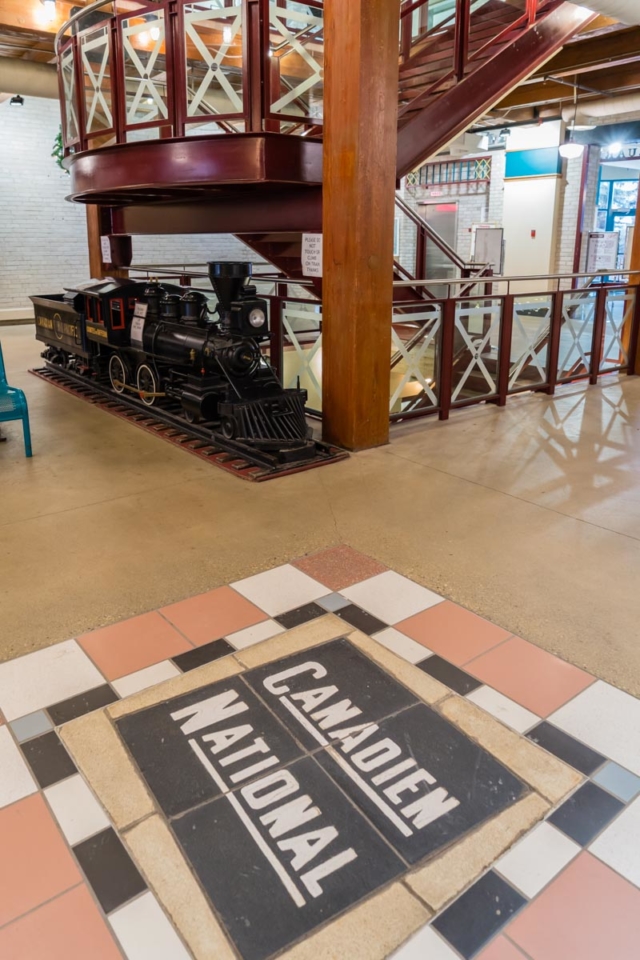

Johnson Terminal is located next door to the Forks and is another historic spot filled with shops and dining. It was a former warehouse for CN Railway, but it has since been restored to help create the modern yet historic feel of The Forks area. Remains of the railway are on display throughout.
One of our favorite places to eat in the Terminal is the Old Spaghetti Factory. Sure, it’s cheesy and a bit of a Canadian chain, but it is filled with nostalgia.
17. Qaumajuq
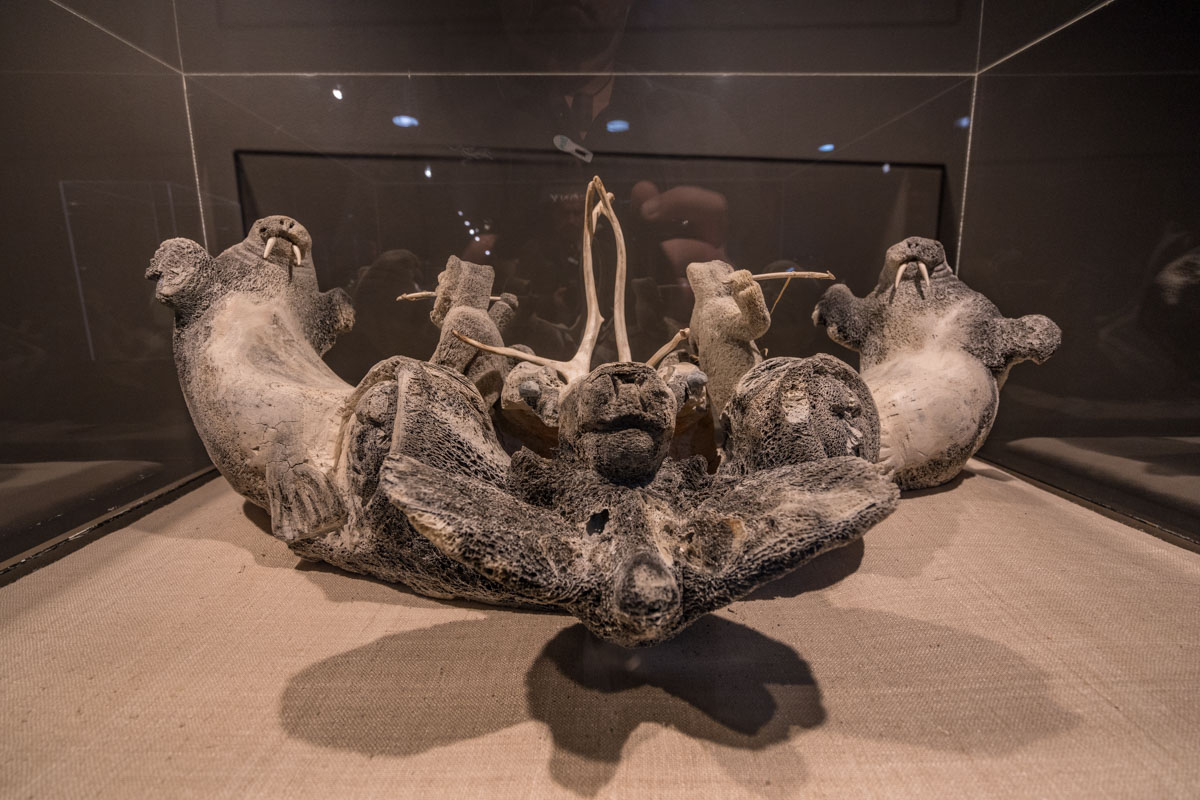

When looking for places to visit in Winnipeg to learn about Indigenous culture, the Quamujuq Gallery is a great place to start. Quamujuq houses the world’s largest collection of Inuit art dedicated to Inuit artists and craftsmanship.
Qaumajuq means “it is bright, it is lit” in Inuktitut. The design was inspired by the landscape of Northern Canada, and its interior features 14,000 pieces of Inuit art. It is fitting as the gallery sits on the original land of the Anishinaabe, Ininiwak, Anishininiwak, Dakota, and Dene peoples. It was also the homeland of the Métis Nation. An entire wing is dedicated to Inuit Art, which WAG has 10,730 works. You’ll also see contemporary art, decorative art, and other Canadian artists on display.
18. Stroll Around The Leo Mol Sculpture Garden
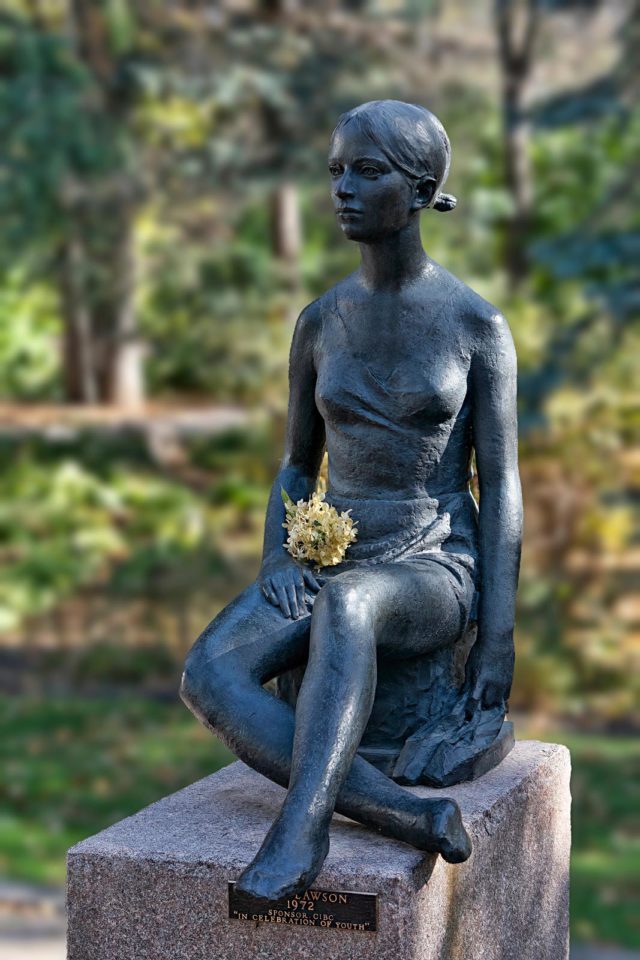

Leo Mol Sculpture Garden is a small garden situated within Assiniboine Park. Featuring beautiful landscaping and works of art, the garden is a lovely place that offers many a pretty sight.
All the bronze sculptures here were created by Dr. Leo Mol, a Ukrainian-born artist who spent most of his life in Winnipeg. Paved walking paths lead through the garden, allowing visitors to discover all the different statues.
The landscaping is pretty much perfect. Come here in spring or summer to experience the place in full glory and see all the wonderful flowers in full bloom.
Practical Information
The Sculpture Garden is open from 9 AM to 9:30 PM. Entrance to the area is free of charge.
19. Hiking At The Assiniboine Forest
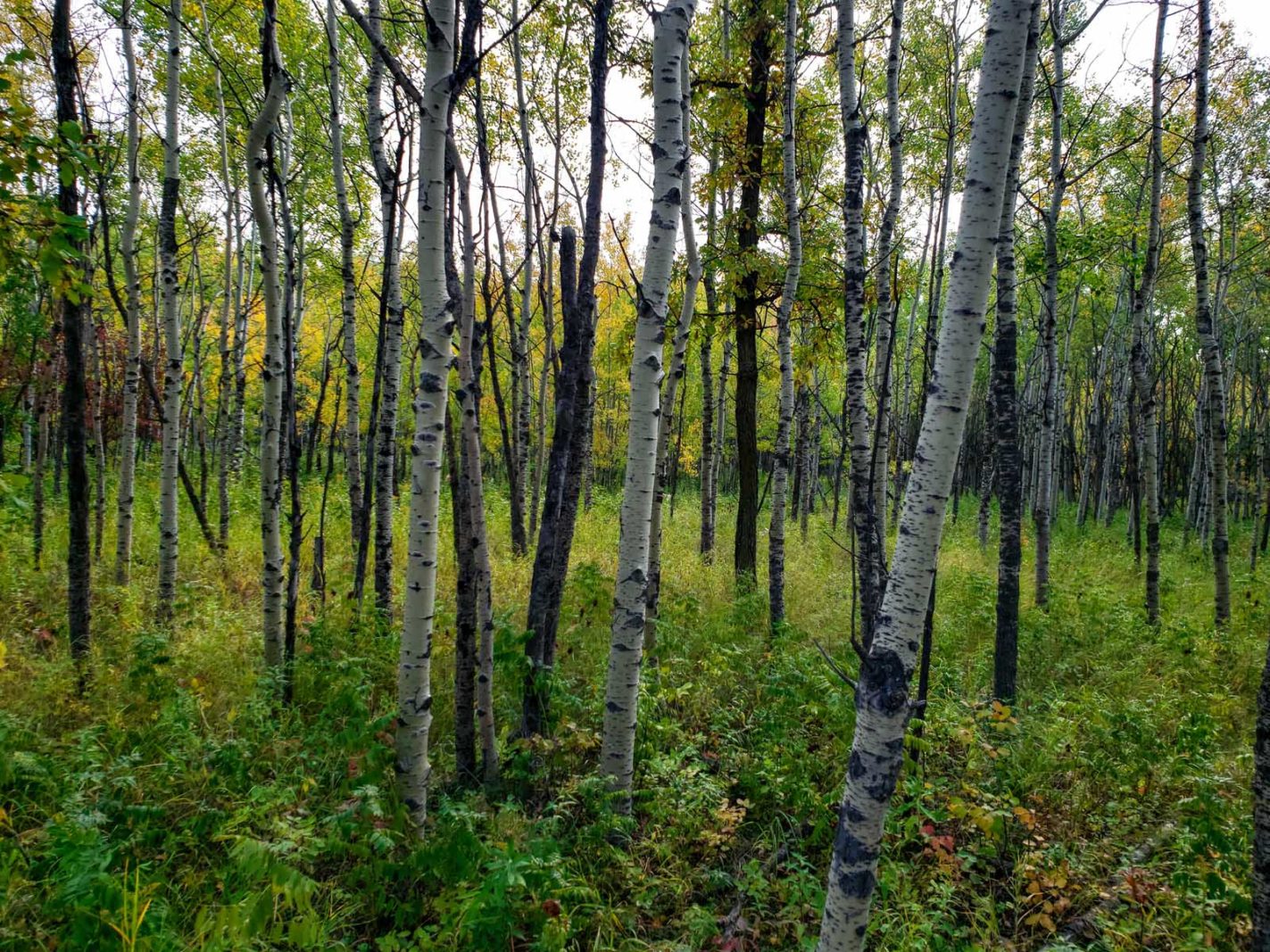

Assiniboine Forest is the southern area of the massive namesake park. Spanning an area of more than 285 hectares, the place is a Mecca for all hikers in Winnipeg. You can be at this Aspen forest in just 15 minutes from downtown exploring the hiking trails and snapping photos of free-roaming deer.
Roughly 18 kilometers of signposted trails are available in the forest. In the warmer months, they’re ideal for hikers and cyclists, while in the winter, they’re perfect for cross-country skiing. Come here to discover a proper urban jungle separating two of Winnipeg’s communities and marvel at the untouched flora and fauna.
One thing I will say is that the forest trails can be underwhelming for very experienced hikers, as they’re all generally easy, and there’s very little elevation change.
Practical Information
Assiniboine Forest is open from 8:30AM to 4:30PM on workdays with free admission. The forest is closed on the weekends.
FAQ For Best Things To Do In Winnipeg
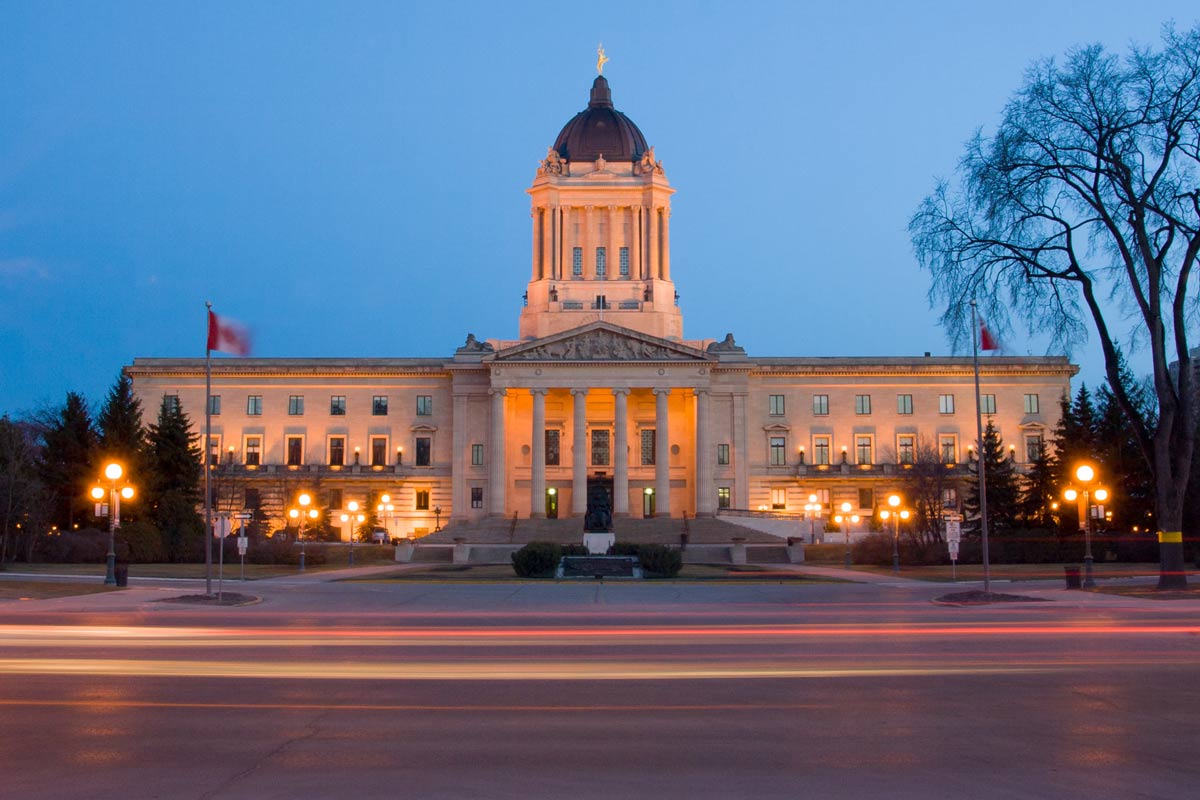

What Is Winnipeg Best Known For?
Winnipeg is best known for its many festivals. The city is also a transportation hub and is often called the Gateway to The West.
Is Winnipeg Good For Tourists?
Yes, Winnipeg is a good city for tourists. With excellent museums, historic landmarks, and fantastic festivals, it’s super easy to have fun in this city.
How Do You Spend a Day In Winnipeg?
A day in Winnipeg should include a visit to the Canadian Museum for Human Rights, a trip to The Forks, and a thorough exploration of Assiniboine Park. With several botanical gardens, exhibits, and a massive zoo, Assiniboine Park takes up the most time.
Why Is Winnipeg Popular?
Winnipeg is popular for its thriving cultural scene. The city is known for its many art museums and galleries, as well as music and dance festivals.
Tips And Information For Visiting Winnipeg
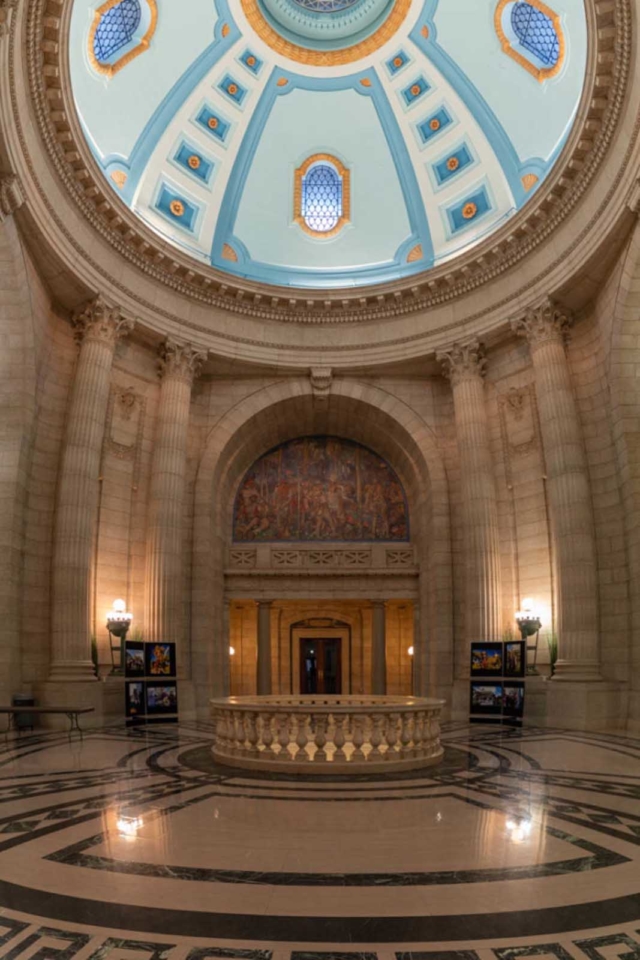

Best Time To Visit
Summer is the best time to visit Winnipeg, especially if you’re not used to Canadian cold weather. Come here between June and August, and you’ll enjoy warm weather, flowers in bloom, and long sunny days. The city is also popular during spring break, and April to May are also good times to visit, but it will be a bit colder.
There are many reasons to come to Canada in the winter, and we highly recommend it if you can handle the cold and snow. There will be fewer crowds around, you can get better hotel deals, and you’ll get to enjoy some truly local experiences.
Getting There


Winnipeg Richardson International Airport services the Manitoba region, and it’s just a 15-minute drive from the city centre. But it’s a small airport with very few international connections, so chances are you’ll need to catch a flight there from one of the bigger airports in Canada.
The airports in Toronto and Vancouver are the busiest country, and both offer connections to the Winnipeg airport. Neither of the two bigger airports is within driving distance of Winnipeg, so flying to the city is by far the best way of getting there.
Getting Around
Buses and Uber are your best bet for getting around Winnipeg. Much of the downtown area is walkable, and many attractions are close to one another, so you can explore quite a bit of the city on foot. But you’ll need to rely on public transport to get to the more remote areas, especially Assiniboine Park.
You can book a private driver from the airport to pick you up upon arrival with a name card and take you directly to your hotel. Book here.
That being said, if you want to travel around Manitoba, you really need a car. Compare these car rental prices to find the one right for you.
How Much Time Do You Need
Two days are just enough time to explore all of the best attractions in Winnipeg. It’s not a huge city and there aren’t too many tourist attractions, so a weekend should give you plenty of time to explore all the best sights.
Where To Stay In Winnipeg
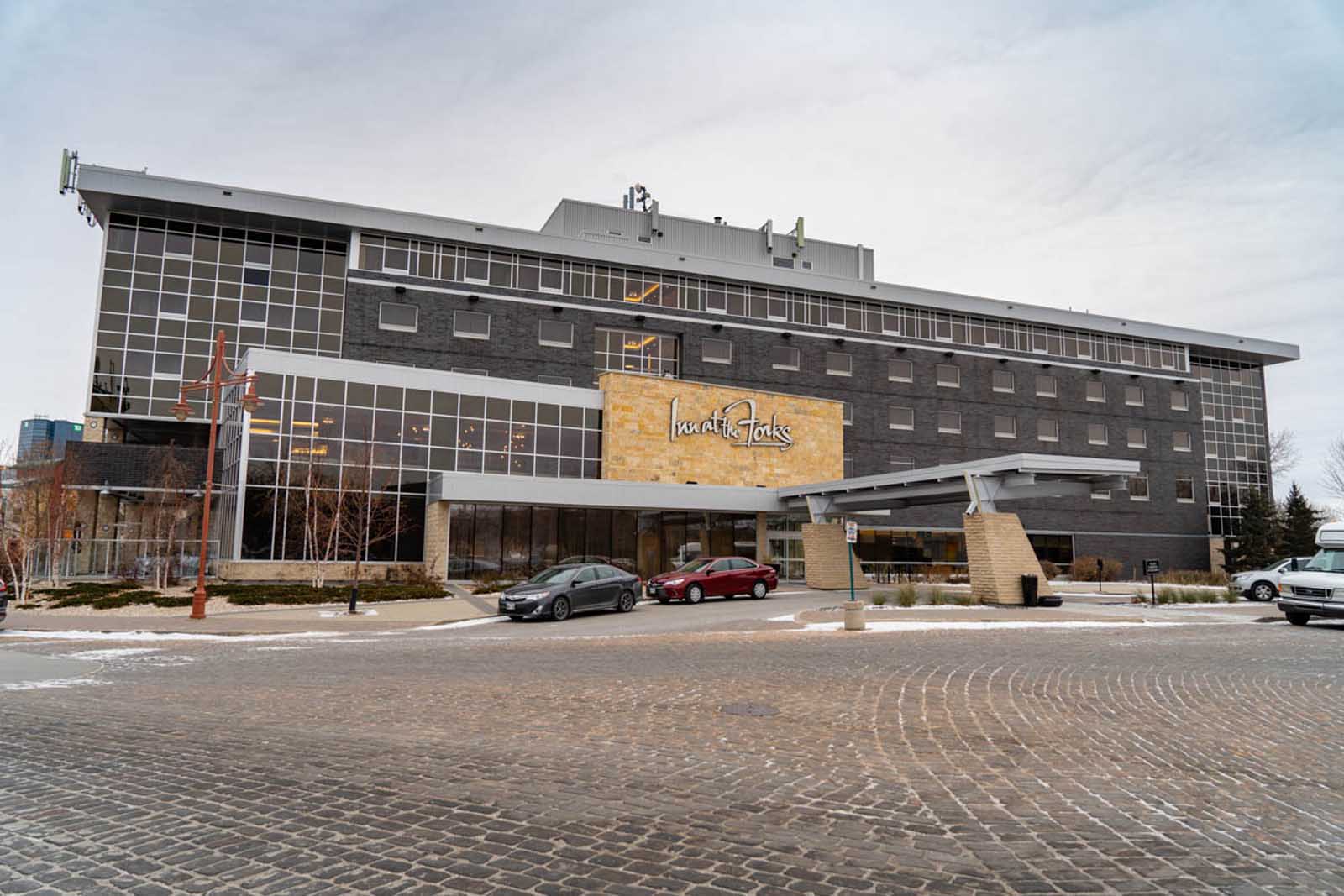

It’s best to base yourself in the city center, especially if you’re in town for just a couple of days. That way you can walk to most of the city’s best attractions and you’ll only need to take an Uber or a bus to get to Assiniboine Park. Here are some of the best hotels in Winnipeg for all budgets:
- Radisson Hotel Winnipeg Downtown is one of the more affordable hotels with a central location in Winnipeg.
- The Fort Garry Hotel is set in a spectacular building just 10 minutes from The Forks. The Fort Garry Hotel With affordable nightly rates and an excellent location, it is one of the best options in Winnipeg for a short stay.
- Inn at the Forks – We stayed at the Inn at the Forks, and I think it is the best location in the city. Located within walking distance from the Museum for Human Rights, the Forks, and Johnson Terminal, you are only steps away from great eats, nightlife, and culture. There is a spa and dining and the rooms are modern and chic. The Inn at the Forks
- Delta Winnipeg Hotel—We have also stayed at the Delta Winnipeg Hotel in the past, and it is another great choice. It has two pools, a skywalk, a pub, and dining. It’s often used for conferences and is easy to walk indoors to the adjoining convention centers. It is located downtown near restaurants and coffee shops.
- Fairmont Winnipeg – We stayed at the Fairmont when on a media tour a few years ago, and you can never go wrong with a Fairmont Hotel. The Fairmont is centrally located close to the river. There is a swimming pool, health club, and two restaurants.
- The Grand Winnipeg Hotel is located directly across the street from departures/arrivals at the Winnipeg Airport, and the Four Points by Sheraton is just a bit farther away. There is a walkway through the Grand to the Sheraton. What we love is that you can take your trolleys from the airport right into your rooms. There are restaurants and bars right on the premises of both.
Where to Eat in Winnipeg
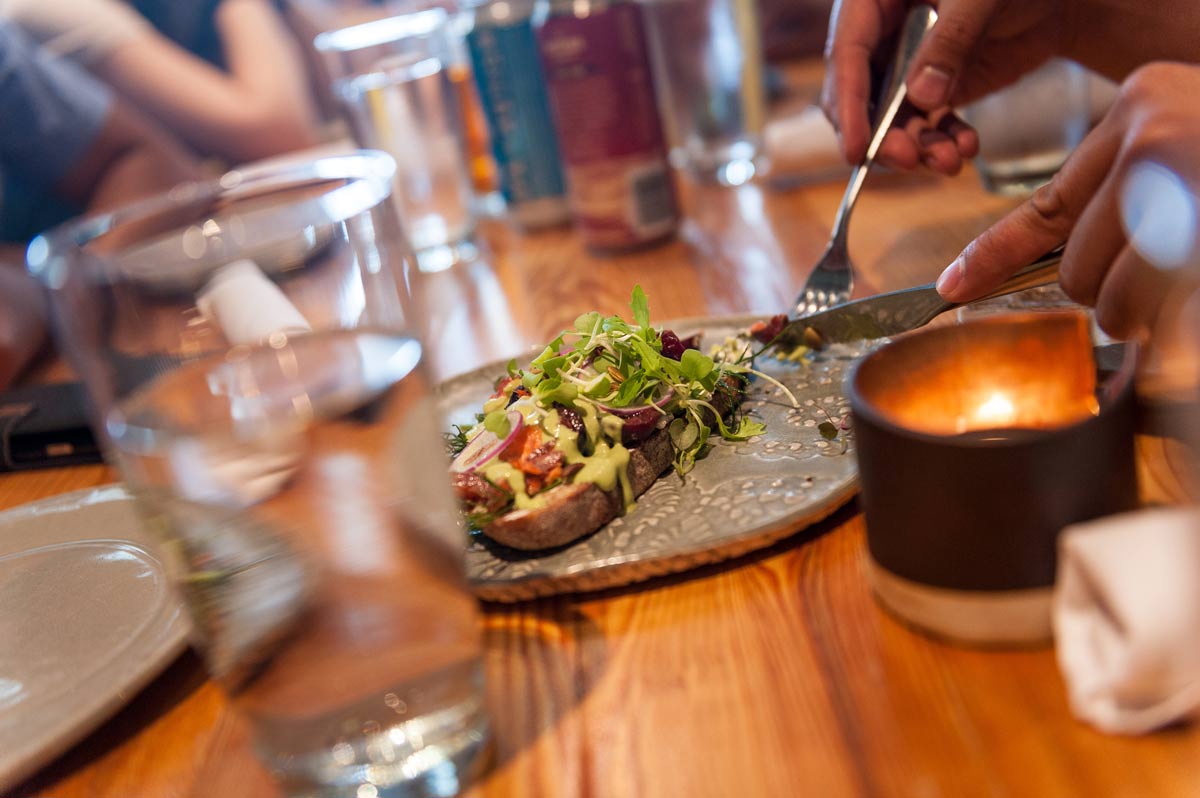

Passero & Corto – We ate at Passero and Corto inside the Forks Market. It’s the only eat in restaurant at the Forks and the Italian cuisine was to die for. Ask your server to help with food and wine pairings and be sure to share some plates to taste all the menu truly has to offer.
Clementine Cafe – Known as the best brunch in the city! Located in Winnipeg’s Exchange District
ERA Bistro – Great option for lunch located inside the Museum for Human Rights. Staying true to the essence of the museum, the restaurant uses locally sourced, sustainable ingredients, that are organic and free-trade.
Read More:

